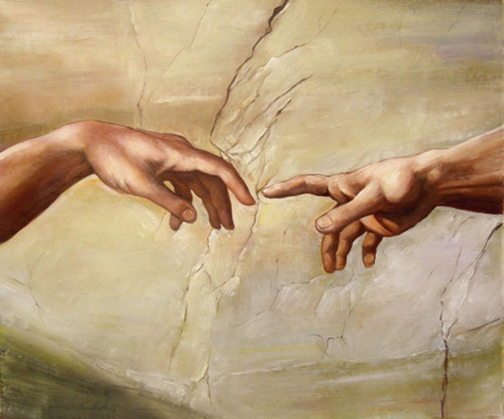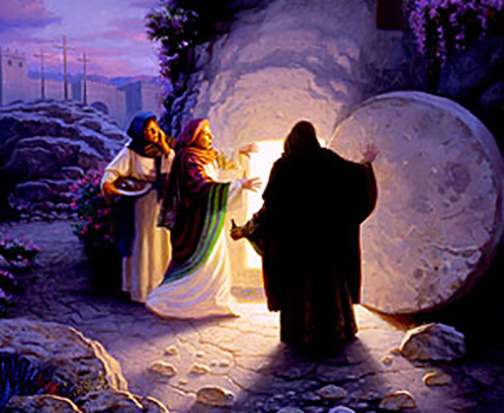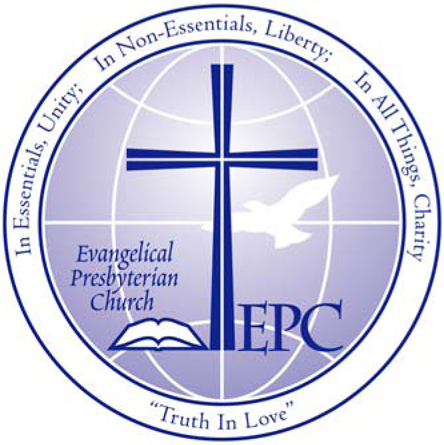 |
Devotionals for Women |  |
_______________
![[Graphic of Jerusalem]](https://www.rpcerie.org/images/by_no_means_least.jpg)
By No Means Least
| “But you, Bethlehem, in the land of Judah, are by no means least among the rulers of Judah; for out of you will come a ruler who will be the shepherd of my people Israel.” |
| —Micah 5:2 and Matthew 2:6 |
People in the days of Jesus would not have named Bethlehem a “destination city.” It lay small and insignificant, a few miles from Jerusalem, which served as the towering, celebrated city among all of Israel. Yet, God chose this little town for the greatest miracle in history.
You might also say, “Mary, you are by no means least among the young women of Israel,” although, at the time, everyone would have considered her pretty commonplace and poor. Yet, God chose this humble virgin as the mother for His Son, Jesus, and honored her above all women.
And, to the shepherds, we could say, “Herdsmen, you are by no means least among the men of Israel,” even though everyone at that time would have looked at them: smelly, uneducated, poor, and hardly capable of the call to spread abroad the news of the Savior’s birth. Yet the angels announced the greatest news in history to them and urged them to spread the news.
So many times in Scripture, God rebukes those who would overlook those considered “least.” Sometimes, we see ourselves in this light, and God rebukes our faulty thinking. He has chosen us to carry His Holy Spirit within us, elevating us far beyond the station to which our corrupt culture might elevate us. And, more often, we pick and choose among the people we meet, or merely see, and purposely overlook those who seem plain, common, or poor.
We should take time during this busy season, to see those around us in a different light. We should wonder if God has chosen them for something special. We should invite them into conversations and we should urge them to occupy honored places. Remember what Jesus said, recorded in Luke 9:48:
“For he who is least among you all—he is the greatest.”
Let us allow the lowly shepherds, the humble Mary, and the little town of Bethlehem to remind us that God often chooses those people, places, and things we tend to overlook. We must allow God to show us His power to elevate and use whomever and whatever He wishes to use for His glory. Amen!
—Posted: Monday, December 25, 2023
_______________

Magnify
| “My soul magnifies the Lord, and my spirit rejoices in God my Savior.” |
| —Luke 1:46-47 |
Mary spoke the above statement upon learning that God had chosen her to bear the Son of God. This stirring tribute to God, called “The Magnificat,” comes from the Latin root word from which our word “magnify” derives. This same verb appears in the first sentence of Mary’s declaration.
One way we use the word “magnify,” is to think of making something appear bigger, so that we can see it better. At a ballgame, we might watch the game from the stands on a jumbo screen that magnifies the players, so that we can see facial expressions and the intricate details of each play. In the laboratory, we magnify tiny creatures through a microscope, so that we can see them better with the human eye. In neither case do we actually make the objects bigger. We just make them appear bigger, so that our eyes can see them.
What did Mary mean when she said that she “magnified” the Lord? As God had chosen to reveal Himself to her through the Holy Spirit, she looked at His character, His might, His blessing, His holiness, His mercy, and His multitude of gifts. Then, she spoke of each attribute of God in such poetic ways and desired to make them bigger, so that she and others could see Him more clearly. It was as though she had practiced this art throughout her short life. God had obviously carefully prepared her for this moment.
Psalm 34:3 records King David’s desire to give the same kind of glory to God that Mary gave. He wrote:
Oh, magnify the Lord with me, and let us exalt his name together!
When we gather together with other Christians and relate what we know of our God, we also magnify Him. We do not actually make Him any bigger or greater than He’s always been. But instead, through our expressions of worship, we show others the bigness of our God. We allow them to see and understand Him in ways they may have never seen Him or understood Him before.
During this Season of Advent, like Mary did, we need to consider our great God, and we need to magnify His character in such a way that others can better see Him, better heed Him, and better know Him for themselves. He is certainly worthy of this exaltation!
—Posted: Monday, December 18, 2023
_______________

Lo, He Comes!
| “Look, he is coming with the clouds; everyone shall see him, including those who pierced him; and all the peoples of the world will mourn because of him. So shall it be! Amen.” |
| —Revelation 1:7 |
“Jesus comes! Prepare!”
These words came early in the biblical story. God promised a Messiah—“God with us”—to the Jews through the Old Testament prophets and then through John the Baptist. We look at these prophecies as texts for the Season of Advent. And, we rejoice that God has a plan through His Son, who came as a helpless babe. Jesus grew into a man, lived, suffered, died in our place on the cross of Calvary, and ascended back to His Father in heaven.
If we only observe the first coming of our Lord at Christmas, we lose the complete story of the Season of Advent. Just as we can read the text of many Advent hymns in two ways—heralding the first coming of Jesus and watching for His second coming—we can sing about the second coming as the next Advent of our Lord.
The hymn, “Lo! He Comes, With Clouds Descending,” expresses the Christian’s hope for Christ’s return to earth. Here’s the first verse. 1
Lo! He comes, with clouds descending,
Once for favored sinners slain;
Thousand, thousand saints attending
Swell the triumph of His train;
Hallelujah! Hallelujah! Hallelujah!
God appears on earth to reign,
God appears on earth to reign.
You may hear a beautiful rendition of this hymn by clicking on the video button below:
The hymn appears to have been a collaboration between five individuals: a land surveyor from England turned Moravian preacher, hymn-writer Charles Wesley, two of his followers—one a cobbler—and finally a man who loved to add Hallelujahs to Wesley texts. One author explains the origin of the hymn this way: 2
As we await the coming of our Lord, about which this hymn is written, God’s Kingdom continues to grow just as this hymn once grew. Preachers, cobblers, land surveyors and those who embellish with hallelujahs build on one another’s efforts for the glory of God. They are just a few of the “thousand, thousand saints attending.”
______________________
| 1 Wesley, Charles; Cennick, John; Madan, Martin. “Lo! He Comes with Clouds Descending.” Hymn in the Public Domain. |
| 2 Peterson, William J. and Peterson, Randy. The One Year Book of Hymns. Wheaton, IL: Tyndale House Publishers, Inc., 1995. Entry for August 8th. |
—Posted: Monday, December 11, 2023
_______________
![[Photo of a snow-covered rose]](https://www.rpcerie.org/images/snow-covered_rose.jpg)
Half-Spent was the Night
| “The people walking in darkness have seen a great light; on those living in the land of the shadow of death a light has dawned.” |
| —Isaiah 9:2 |
From as far back as the fourteenth century, images of the tender stem and fragrance of a rose and the half-spent night remind us of the largely unnoticed way in which Jesus, the Messiah, came into our world. The first and second stanzas of the Christmas carol “Lo! How a Rose E’er Blooming” use this phrase: “When half-spent was the night.”
When we think about that phrase, it suggests that the “night” still flows onward. Our world continues to have a shroud of darkness covering it. Yet, in the last stanza of that Christmas carol, we see that this “Flower”—with glorious splendor—dispels the darkness everywhere. This tender rose depicts our Savior, the Lord Jesus, who has come to us as a beautiful baby and at a time in history that God chose, while things were void of His light.
Depending on our circumstances, we may face a time of darkness and seeming absence of light this Season of Advent. But, we must remember that we do indeed have a Savior. And, we must also keep in mind that He does come to us in the darkness of our lives. When we know Him—when we look for Him and seek Him—He has promised to come to us in His glorious presence.
Note the words of this beloved Christmas carol: 1
Lo, how a rose e’er blooming
from tender stem hath sprung!
Of Jesse’s lineage coming
as men of old have sung.
It came, a Flower bright,
amid the cold of winter,
When half-spent was the night.
Isaiah ’twas foretold it,
the Rose I have in mind;
With Mary we behold it,
the virgin mother kind.
To show God’s love aright
she bore to men a Savior,
When half-spent was the night.
This Flower, whose fragrance tender
with sweetness fills the air,
Dispels with glorious splendor
the darkness everywhere.
True man, yet very God,
from sin and death he saves us
And lightens every load.
The Baylor University Chamber Singers share this lovely Christmas carol:
______________________
| 1 Lo! How a Rose E’er Blooming. German Carol, Public Domain. |
—Posted: Monday, December 4, 2023
_______________

Bravo!
| “Hallelujah! For the Lord God Omnipotent reigneth. The kingdom of this world is become the Kingdom of our Lord and of His Christ, and He shall reign forever and ever. King of kings and Lord of lords, and He shall reign forever and ever.” |
| —Revelation 19:6; 11:15 |
Most people will recognize the words in the Scripture verse above as the text of the “Hallelujah Chorus” from Handel’s Messiah. It has become a custom for those in the audience or congregation to rise to their feet and remain standing during the singing of this chorus from the oratorio. King George II, attending the first performance of this work in 1741, was so moved by the glorious music that he stood. The audience in the concert hall followed his example. Since that time, kings and commoners have stood in honor of the Lord God Omnipotent, who reigns over heaven and earth.
Whether we stand in honor of the King of Kings, or kneel before Him, echoing the words of the Prophet Isaiah, God spoke these words through the Apostle Paul, found in Philippians 2:9-11:
Therefore God exalted him [Jesus] to the highest place and gave him the name that is above very name, that at the name of Jesus every knee should bow in heaven and on earth and under the earth, and every tongue confess that Jesus Christ is Lord, to the glory of God the Father.
Especially in the culture of the United States, humans find bowing to anyone difficult. But to Americans, bowing before foreign kings and world leaders seems especially troubling because of their exalted place among men and, more often than not, their seeming lack of the kind of humility God will some day require from all of His creation. For an amazing story of a king whom God turned around, please study the story of King Nebuchadnezzar in these three chapters from Daniel 2 - 4.
Nebuchadnezzar, the king of the very large Kingdom of Babylon, thought so much of his own power that he had a 90‑foot‑tall statue of himself erected for all to worship. He boasted of his greatness and flew into a murderous rage at anyone refusing to bow before this representation of himself. But, God took Nebuchadnezzar through some phenomenal experiences and brought him to a place of genuine humility. Note this testimony of the king from Daniel 4:37:
Now I, Nebuchadnezzar, praise and exalt and glorify the King of heaven, because everything he does is right and all his ways are just. And those who walk in pride he is able to humble.
We should humbly pray for world leaders that they, too, may recognize Jesus Christ as the true King of Kings and Lord of Lords. And, like King George II in 1741, honor Christ by standing, or kneeling before Him.
When you listen carefully to the famous “Hallelujah Chorus,” please hear within this piece a sense of the greatness of Christ’s power, the awesomeness of His loving reign, and the honor truly due Him from us all!
—Posted: Monday, November 27, 2023
_______________

Gratitude Excites Humility
| “Now I, Nebuchadnezzar, praise and exalt and glorify the King of heaven, because everything he does is right and all his ways are just. And those who walk in pride he is able to humble.” |
| —Daniel 4:37 |
Pride seems to erase gratitude. Have you ever thought about that? And the reverse seems true as well: gratitude seems to erase pride. How does that happen?
Scripture gives us a multitude of examples of people and nations filled with pride that God had to humble. For example in Ezekiel 28:17, God said to the city of Tyre:
Your heart became proud on account of your beauty, and you corrupted your wisdom because of your splendor.
Even Satan himself, filled with pride, heard these words from God recorded in Isaiah 14:13:
You said in your heart, “I will ascend to heaven; I will raise my throne above the stars of God; I will sit enthroned on the mount of assembly, on the utmost heights of the sacred mountain. I will ascend above the tops of the clouds; I will make myself like the Most High.” But you are brought down to the grave, to the depths of the pit.
We all have those things in our lives for which we are tempted to invest our pride. Whether it’s:
- “my body of work”
- “my family”
- “my home”
- “my beauty”
- “my talent”
- “my charming personality”
- “my something else.”
When we take personal credit, gloat over others, or try to impress others, we have taken those things that God has given us and turned them into objects of our own personal pride. We have forgotten that God is the source of every good and perfect gift in our lives.
Even countries, cities, and churches can become prideful about the wonderful things that have come their way through God’s grace. When I hear people talk about “American Exceptionalism,” I agree in part. But, I wish those who speak so pridefully of this characteristic of our nation would also recognize that God has “shed His grace on us.” As a nation, we have been extraordinarily blessed by Him. We simply cannot take sole credit for anything our nation has.
Can we feel pleasure in the things God has uniquely given us? Certainly. But, when that pleasure erupts into praise of self and a sense of willful pride, we have crossed a line. When sinful pride creeps into our thinking, we should step back, realize all God has done for us in creating us with gifts and abilities that He has chosen to give to us, and gratefully bow in worship before our great God. He gives us gifts of all sorts. And, He wants us to joyfully use them to glorify Him.
In our example of Nebuchadnezzar at the beginning of this blog post, we see a pagan king, who experienced the humbling of God, pausing to reflect on this powerful, righteous One. How much more should we daily acknowledge God’s work in us. We should take no credit. Instead, we should bow in grateful praise. Everything we have should be on display for God’s glory—not ours!
—Posted: Monday, November 20, 2023
_______________

Gratitude Erases Fear
| “Do not be anxious about anything, but in everything, by prayer and petition, with thanksgiving, present your requests to God. And the peace of God, which transcends all understanding, will guard your hearts and your minds in Christ Jesus.” |
| —Philippians 4:6-7 |
There it is! The key statement! It’s right there in the middle of the verse at the beginning of this blog post!
“… with thanksgiving …”
Who has time to be thankful in the middle of an anxiety producing crisis? Apparently God expects it of us regardless of the circumstances.
“But, what have I to thank Him for when I am in trouble?”
We can always begin by thanking God for Who He is. Elsewhere in Scripture we read that God has almighty power. Even the devil and his demons shudder at that! (see James 2:19) That means that God is bigger than any trouble we may have. We can also look to His omniscience—His “all-knowing wisdom”—concerning us. God knows us in more detail than we know ourselves. And, God knows about every situation in which we may find ourselves.
Add to that, God’s omnipresence—His “everywhere presence”—which He has promised will never leave us or forsake us. We can also thank God that nothing comes our way unless He allows it. It’s true that God has a perfect plan for us, and He wants to use everything, even our troubles, to accomplish His perfect will in us and for us. Therefore, we must wholeheartedly thank Him for it!
In the middle of any prayer-producing crisis in our lives, for what else can we give thanks to God? We can remember how God has treated us in the past. We can focus on how God has answered our prayers. We can remember how God has spared us from worse harm than we experienced. We can recall how God has revealed His love to us during each situation we had to face in our lives.
Has God answered our prayers and healed us before? Then, we must thank Him, and allow that remembrance to take away our fears. Has God provided for us when we have needed help? In response, we must praise God for His faithfuleness. Don’t fear. Indeed, God will provide for us this time, too.
What does the verse at the beginning of this blog post, from the Book of Philippians, promise us when we come with gratitude to God with our requests? It promises that we will have:
“… the peace of God, which transcends all understanding …”
Does all this seem too much to get our minds around? Perhaps, but that’s the kind of powerful result we will see from praying through our fears with thanksgiving.
During all fearful and impossible situations, I challenge each of us, including myself, to live in the place of thanksgiving. Let’s see what God will produce in us to replace all our fears!
—Posted: Monday, November 13, 2023
_______________
![[Photo of a young blind woman walking in the woods]](https://www.rpcerie.org/images/blind_woman.jpg)
Godly Ophthalmology
| “The god of this age has blinded the minds of unbelievers, so that they cannot see the light of the gospel of the glory of Christ.” |
| —2 Corinthians 4:4 |
I once had cataracts. The cataract clouds the vision of the lens of the eye and can be blamed for the majority of human blindness across the world. I am grateful that here in the United States, we have routine cataract surgery, easily done and usually without serious consequences.
What a contrast between blindness and the brilliant glory of Christ. Eugene Peterson defines glory as:
… the open display of God’s good will, his loving salvation, his redeeming purpose. 1
The brilliance of God’s glory as referred to in Exodus 34:29-35 caused Moses’ face to shine so intensely that he had to wear a veil when he spoke to the Israelite people. God’s glory, brilliant and dazzling, lies in contrast to the blindness of the human race, struck sightless by the sin we bear.
Just as a cataract fogs the lens completely if not removed, so sin takes away the sight of all of us until God gives us the ability to see again. All of us know the phrase, “I once was blind, but now I see” from the hymn Amazing Grace. 2
A graphic picture of this comes to us in the story of St. Paul on the road to Damascus, found in Acts 9:1-18. Religious and obedient to his faith in every way, Saul thought persecuting this new sect of “Christians” fell on him, and he went about the country making “murderous threats” and imprisoning them. The day that glory of Christ Himself shone on Saul, knocking him from his donkey and blinding him, Saul heard God speak to him from this “glory” and Saul turned to God in repentance and new faith. God then changed Saul’s name to Paul.
Acts 9:18 tells us that after Paul met Ananias, who laid his hands on Paul:
…immediately, something like scales fell from Saul’s eyes, and he could see again.
Like the removal of cataracts to restore our physical sight, God miraculously removes the spiritual blindness of our hearts caused by the clouding of sin. He comes to us with that unique life-changing encounter with Him. We then begin to see in a new spiritual way things we never could see before.
We can now observe the brilliant colors of God’s truth that once was a drab absurdity. We understand in a new way God’s wonderful love and His amazing provision for us. Christ Jesus, who once dwelt so far away that we could not see Him, now is seen up close, with clarity and definition.
Let us rejoice today, if God has removed our spiritual cataracts so that we can see Him and know Him. We must pray for those we know who still stumble in the darkness, and ask God for opportunities to allow us to share with them the transforming vision we have received from Him. He has made this operation available to them, as well, through His birth life, suffering, death, resurrection, and ascension. The Great Physician waits to heal spiritual eyes and restore sight!
______________________
| 1 Peterson, Eugene. A Year with Jesus. San Francisco: Harper Collins Publisher, 1989. p. 321. |
| 2 Newton, John. Amazing Grace. Public Domain. |
—Posted: Monday, November 6, 2023
_______________

A Unique, Beautiful Frame
| “Lord, you have assigned me my portion and my cup; you have made my lot secure. The boundary lines have fallen for me in pleasant places; surely I have a delightful inheritance.” |
| —Psalm 16:5-6 |
When looking at a picture, do you notice the frame? The frame can either enhance or detract from the picture it holds. Sometimes, it can reflect as much beauty as the picture. I am convinced that our lives compare to frames. They get more ornate as the years add up and reflect the imagination of God, the Creative Artist who fashions each life.
As time works on us, our struggles bring out a rich patina to the metal. The trials and deadly effects of life add swirls and cut deep into the wood, adding carved designs to the frame. In the end, we realize that Romans 8:28 has become true for us:
And we know that for those who love God all things work together for good, for those who are called according to his purpose.
Recently, in preparing to teach from 1 Samuel about Samuel’s mother, Hannah, I came across this quote about her: 1
When Hannah took a very young Samuel to Shiloh and knelt with him in worship before leaving him behind to serve the Lord all the days of his life, the frame around her words was her long history of infertility and persecution for her faith in God. Hannah knelt in prayer that day within the context of a relationship with God that had withstood the tests of time and adversity.
When we feel the effects of wear and tear on our bodies, or the scraping and carving of the knife on our emotions and heart, we must realize that God considers the unique, beautiful frame with which He has surrounded us.
Our prayers and our words of encouragement to others have been framed by those circumstances that God the Artist has allowed us to experience. The picture may not be completed yet. Nevertheless, along with the finished frame, that picture will sometime reveal a more beautiful piece of art than we have ever realized.
______________________
| 1 James, Carolyn Custis. Lost Women of the Bible. Grand Rapids, MI: Zondervan Publishing Company, 2005. p. 132. |
—Posted: Monday, October 30, 2023
_______________
![[Photo of a woman tasting a spoonful of soup]](https://www.rpcerie.org/images/soup_tasting.jpg)
Taste Test
| “Taste and see that the Lord is good; blessed is the man who takes refuge in him.” |
| —Psalm 34:8 |
I am always heartened to see the professional cooks on television taste their food to see if they like it. As a rather insecure cook, I must frequently use the taste test myself.
Psalm 34, quoted above, was written by David when he was in trouble. He had no one to trust but God Himself. Here David urges those who have difficulties like his to test the Lord and to find out that that the “taste” proves God’s goodness.
So, how are we to implement this particular kind of “taste test”? We perform that test by putting our trust in God when we need protection or provision. David tells us we won’t be disappointed. The test of our faith will reveal so much more nourishment and enjoyment from God than we could even imagine or expect.
We can also “taste” the goodness of our God by the reminders of His power, mercy, grace, and love through His written Word. Like a savory meal or a rich, satisfying dessert, we can dine on God’s revealed truth to us in His precious written Word. Another Psalmist tells us, in Psalm 119:103:
“How sweet are your words to my taste, sweeter than honey to my mouth.”
When I have guests coming for a meal, I am especially nervous about the right balance of the food. When we share our favorite dishes, we want those whom we’ve invited to enjoy them as much as we do.
But, what about those who have never “tasted” our God through the Lord Jesus Christ, His Son? How should we prepare and season the food of God’s written Word for those we hope to invite to the meal?
We want our feast filled with the zest of Christ. We desire those who have never tasted Him, to smell the aroma, to be drawn to the table prepared by the Holy Spirit. As Christians, even Jesus told us that we have the effect of presenting the world with His savory goodness. In Matthew 5:13, Jesus said:
“You are the salt of the earth. But if the salt loses its saltiness, how can it be made salty again?”
Let us pray that God will allow us new bites of His goodness. Then pray that He will make our lives and the “food” we present to those who need it, tasty indeed, full of flavor, and sparkling with fresh goodness.
—Posted: Monday, October 23, 2023
_______________

Sibling Rivalry
| “If anyone thinks he is something when he is nothing, he deceives himself. Each one should test his own actions. Then he can take pride in himself, without comparing himself to somebody else, for each one should carry his own load.” |
| —Galatians 6:3-4 |
Where does sibling rivalry come from? It seems to me that largely it comes from jealousy, selfishness, or a combination of both. Even the Bible has stories of such family disputes. These stories caution us about the common, but contentious, occasions between brothers and sisters, both at home and perhaps especially within our churches.
One such story occurs in Luke 10:38-42. You know how this story goes. Martha is cooking, while pots and pans pile up in the kitchen. But, Mary sits at Jesus’ feet listening to Him teach. Martha complains to Jesus and He sides with Mary because she chose to do “the most important thing.” Mature Martha loves Jesus. So, she undoubtedly responds in humility and love for her sister, as well.
Jesus tells another well-known story of the Prodigal Son in Luke 15:11-32. In this story, the younger brother rebelliously demands that his father given him what will become his inheritance money, recklessly spends it on foolishness, but later returns home to ask forgiveness from his father. The older brother, who has remained faithful, stayed at home, and continued to work for his father, doesn’t appreciate the celebration and the banquet given to this ne’er-do-well sibling. The rift may have separated these brothers permanently. But, we aren’t told whether or not this is true.
My last illustration from Scripture can be found in Mark 10:35-45. This story shows what can happen within a faith community infected with rivalry. Brothers James and John come to Jesus and ask if they can sit in the two most prominent seats in heaven—one on Jesus’ right and the other on His left. The remaining ten disciples became so indignant that Jesus has to sit them all down and tell them:
“… whoever wants to be great among you must be your servant, and whoever wants to be first must be slave of all.”
These stories illustrate the way that small rifts between brothers and sisters can cause disunity in our homes, at our workplaces, and, sadly, in our churches. Each such rift provides an entrance for the devastating work of the evil one. This kind of disharmony adversely affects the witness of the body of Christ and tends to turn Christians from allowing the power of the Holy Spirit to work freely in that body. Scripture admonishes us often to work at maintaining peace with our brothers and sisters, particularly within the church.
As Paul tells Christ’s followers in Ephesians 4:3:
Make every effort to keep the unity of the Spirit through the bond of peace.
We may expect, even tolerate, sibling rivalry between little children. But, among mature believers, we must ask God to protect us from the sins of jealousy and selfishness that create an atmosphere ripe for disunity. In our homes, in our places of work, and particularly in our churches, may God’s peace grow and abound to Christ’s glory!
—Posted: Monday, October 16, 2023
_______________
![[Graphic drawing of Noah overseeing the loading of the Ark]](https://www.rpcerie.org/images/Noah_loading_the_Ark.jpg)
Not Seen As Yet
| “By faith Noah, being warned of God of things not seen as yet, moved with fear, prepared an ark to the saving of his house; by which he condemned the world, and became heir of righteousness which is by faith.” |
| —Hebrews 11:7 KJV |
Noah found favor with God. And, according to Scripture found in Genesis 6 and 7:
God found him (Noah) righteous, blameless, among the people of his time, and he walked with God.
Noah was chosen by God for a very unique and historical appointment. In great detail, God laid out for Noah plans and promises for building an ark because God intended to send a great flood of judgment on the world.
Scripture tells us in Genesis 6-8 just how Noah dedicated his time, effort, and faith in doing exactly what God had said. This act of extraordinary faith landed Noah in the “Faith Hall of Fame” found in Hebrews 11:7.
Noah no doubt suffered cruel mocking by the godless people who lived around him. Yet, he followed every element of God’s plan. Noah may not have understood these life-changing commands of God, but Noah was rewarded with the saving of himself, his family, and all the living creatures when the world was indeed destroyed by a great deluge and flood.
Consider the extraordinary matter of this story. The key to the strength of Noah’s faith is contained in that phrase: “…of things not seen as yet.” Despite what Noah could not see, he believed God and obeyed.
Puritan Thomas Manton comments on Noah’s faith:1
Though Noah only had the naked word of God, he believed. Also, the means of an ark was an improbable and incredible way of safety. The ark was made like a coffin where Noah was buried with all kinds of living creatures for many days. Certainly so great a work was done at great expense and labor… He had a thousand discouragements, yet being moved with fear, he prepared the ark. These things being so remote from sense, and only certain in God’s word, show the great force and virtue of his faith… It is the property of faith to be moved by such things that are not open to sense.
Could this account of Noah speak to us in 21st century America? Does God see things in our lives that we “have not seen as yet”? In His good season, does God intend to ask us to step out in faith? Are there new relationships He wants us to form? Does God have a new ministry that He wants us to create or join? Does God intend to give us new talents that He wants us to develop for His use?
While God may not ask us to build an ark to save those we love from the judgment He intends to bring against our generation, certainly He calls us—and all Christians in this day—to step out in faith for the saving of His people and for the performance of the work of His church.
______________________
| 1 Manton, Thomas (author). Richard Rushing (editor). Voices From the Past. Edinburgh: Banner of Truth Trust, 2016. Vol. 2, p. 255. |
—Posted: Monday, October 9, 2023
_______________

Yet
| “Why are you so downcast, O my soul? Why so disturbed within me? Put your hope in God, for I will yet praise him, my Savior and my God.” |
| —Psalms 42:5 |
Don’t you just love procrastinators? They say they will send you something, or come to visit you, or do something for you or others, or take care of an issue, but you can’t depend on when, or if, they will actually do what they have promised. You watch and hope they will come through. You wait, and you wait, and you wait.
Many accounts in the Scriptures make God look like a giant procrastinator. We wait and wait and pray and pray and nothing seems to happen like we think it should. We have many examples in the Bible:
- Joseph, son of Jacob, stayed in prison for a crime he didn’t commit for two full years. (Genesis 41:1).
- Hannah wanted a baby, but the years went by and she remained childless. (1 Samuel 1:7).
- David was anointed king. But, before he was crowned king, he still spent years being chased by the murderous King Saul. (Books of 1 and 2 Samuel).
Yet, in the study of all these stories, and many more, we see that God actually had a long-range plan and, which was His right as God, He waited for the right time to bring that plan to pass. A pastor I once knew called it: “the eventuality of God’s working.”
In the Book of Habakkuk, we read the prophet’s cry in Habakkuk 1:2:
“How long, O Lord, must I call for help?”
Then, God answers the prophet in Habakkuk 2:3:
“For the revelation awaits an appointed time; it speaks of the end and will not prove false. Though it linger, wait for it; it will certainly come and will not delay.”
Finally, in Habakkuk 3:17-18, we read that the prophet himself has taken up the word “Yet”:
“Though the fig tree does not bud and there are no grapes on the vines, though the olive crop fails and the fields produce no food, though there are no sheep in the pen and no cattle in the stalls, yet I will rejoice in the Lord, I will be joyful in God my Savior.”
When we seem to “hope” our procrastinator friend will come through, we actually “wish” more than having a godly hope. But, when we wait patiently on God to act, the Bible encourages us to depend upon real God-given hope.
The Psalmist speaks of such a hope in the verse found at the beginning of this blog post. As we read in Lamentations 3, the Prophet Jeremiah, whose “splendor, and all he hoped for from the Lord was gone,” used the word “yet” and spoke of the “hope” he had.
What a God-given hope it takes for us to believe that, after months or years of praying, and believing, and waiting, God will eventually act according to His plan and His love for us. We must always wait, and pray, and believe. We must trust God to strengthen us for the waiting days ahead. And, to encourage us in our waiting, let’s read biblical accounts of faithful servants who hoped, and waited, and finally received that for which they prayed to God.
—Posted: Monday, October 2, 2023
_______________
![[Photo of the road to Pikes Peak]](https://www.rpcerie.org/images/road_to_pikes_peak.jpg)
We Had Heard
| “As we have heard, so have we seen.” |
| —Psalm 48:8 |
I had heard about and seen pictures of Pikes Peak in Colorado for many years. In fact, I showed pictures to classes as I taught “America the Beautiful” written by Katherine Lee Bates from the top of that mountain. But, I had never seen it for myself. Then one summer my husband and I traveled to Colorado Springs and drove up the mountains to the Peak. I experienced something much broader and bigger than I imagined. The winding, treacherous road, the clear air above the timber-line, the steep climbs, the breathtaking views from the summit, all gave me a much more vivid view of this great mountain.
In Scripture, we find several examples of persons experiencing the wonders of God for themselves that they may have only heard about before. In Psalm 48, the people recount the deliverances of the Lord in their past history. They exclaimed together:
“We had heard about God’s mighty acts. We heard the stories from childhood, but now, in our own time, we have actually seen them for ourselves.”
In the book of Job, we read the story of God’s servant whose life God allowed Satan to devastate. Job suffered great torture and never knew the reason. Yet, he didn’t give up on God. At the very end of his story in Job 42:5, Job confessed to God:
“My ears had heard of you but now my eyes have seen you.”
Job’s experience far outweighed the stories about God. In 1 John 1:1, the Apostle describes what he and others had experienced of God:
“That which was from the beginning, which we have heard, which we have seen with our eyes, which we have looked at and our hands have touched—this we proclaim concerning the Word of life.”
Here again, the early church gave great significance to the experience of seeing and knowing Christ. The Apostle Paul also recognized the importance of a personal knowledge of God. In Philippians 3:10, he yearned:
“I want to know Christ and the power of his resurrection and the fellowship of sharing in his sufferings, becoming like him in his death, and so, somehow, to attain to the resurrection from the dead.”
Do we want to know Christ in this way, by experience? God invites us to come near, to know Him, to experience the way of life He offers, and to no longer live only on the encounters of others.
—Posted: Monday, September 25, 2018
_______________
![[Drawing of Ruth gleaning in Boaz' fields]](https://www.rpcerie.org/images/Ruth.jpg)
By Hap
| “She gleaned in the field after the reapers: and her hap was to light on the part of the field belonging unto Boaz, who was of the kindred of Elimelech.” |
| —Ruth 2:3 KJV |
Sometimes the language of the King James Version of the Bible catches my attention in a way that the modern translations don’t. When Charles Haddon Spurgeon wrote his devotional book, Morning and Evening, he used the word “hap”—a word that was quite familiar at the time of his writing in the mid-1800s. It means “by happenstance,” or “taking place by coincidence, or chance.”
The unknown author of the Old Testament Book of Ruth tells the story about how Ruth, seemingly by chance, gleaned in the field of her mother-in-law’s relative Boaz. Here’s what Spurgeon wrote about the story: 1
Ruth had gone forth with her mother’s blessing, under the care of her mother’s God, to humble but honourable toil, and the providence of God was guiding her every step. Little did she know that amid the sheaves she would find a husband, that he should make her the joint owner of all those broad acres, and that she a poor foreigner should become one of the progenitors of the great Messiah. God is very good to those who trust in Him, and often surprises them with unlooked for blessings.
If we stop to consider carefully the days of our own lives, most of us would see times when things that seemed “by hap” actually turned out to have occurred by the design of our Sovereign God. Along this vein, I read an account of the day Christian artist and author, Joni Eareckson Tada, had the diving accident that left her a quadriplegic for life.
Joni’s sister, Kathy, was at the beach with Joni. She stayed near the shore and suddenly felt a sharp pinch by a crab and screamed to Joni to watch for crabs. Because Joni didn’t respond, Kathy immediately went looking for her and ended up saving her from drowning. Kathy writes, speaking of God: 2
From the big events in life down to the tiniest of details, He is great, He is sovereign, and He is in control.
When we are tempted to think that we have experienced a coincidence, we must remember that, as God’s dearly loved children, our Heavenly Father sovereignly looks out for us, directs our ways, uses us in the lives of others, and yearns to have us honor Him with our thanksgiving for all that He so graciously does for us. In the lives of those of us who belong to God through the Lord Jesus Christ, there simply is no such thing as “by hap”!
______________________
| 1 Spurgeon, Charles Haddon. Morning and Evening. McLean VA: MacDonald Publishing Company, Public Domain. p. 599. |
| 2 Tada, Joni Eareckson. Pearls of Great Price. Grand Rapids, Michigan: Zondervan Publishing Company, 2006. Devotional for July 19th. |
—Posted: Monday, September 18, 2023
_______________

Beyond
| “No one is like you, O Lord; you are great, and your name is mighty in power … Among all the wise men of the nations and in all their kingdoms, there is no one like you.” |
| —Jeremiah 10:6-7 |
Sometimes I hear people questioning to what the “Beyond” in the chain store Bed, Bath and Beyond® refers. But, it got me thinking about that English word, and two Scripture passages containing it.
Perhaps the first passage came to me in an especially difficult time. From 2 Corinthians 1:8, I recalled:
We were under great pressure, far beyond our ability to endure, so that we despaired even of life.
Many will say that God never gives us any burdens we can’t bear alone. I’m not so sure. He wants to grow us to the point in which we have no strength left in ourselves, so that He can show us His mighty power at work in and for us. When we run out of our ability to endure, we can count on His power to take over.
I know this because I read about this power in another of the Apostle Paul’s words found in Ephesians 3:20-21 (NASB):
Now to Him who is able to do exceeding abundantly beyond all that we ask or think, according to the power that works within us, to Him be the glory in the church and in Christ Jesus to all generations forever and ever. Amen.
Our God gives us trials beyond our abilities to endure so that He can do what goes abundantly beyond all that we could even imagine!
In response, I repeat to you from a contemporary hymn:1
O God beyond all praising,
we worship you today
And sing the love amazing
that songs cannot repay;
For we can only wonder
at every gift you send,
At blessings without number
and mercies without end;
We lift our hearts before you
and wait upon your word,
We honor and adore you,
our great and mighty Lord.
The only thing we can do when God shows His “beyondness” over our weakness is to offer Him our thanks and praise in such a way that honors His wonderful name. Amen and Hallelujah!
______________________
| 1 Perry, Michael. O God Beyond All Praising. Carol Stream, Illinois: Hope Publishing Co., 1982. |
—Posted: Monday, September 11, 2023
_______________
![[Photo of cows beside a swimming pool]](https://www.rpcerie.org/images/cows_by_pool.jpg)
“The Cows are Out!”
| “You hem me in—behind and before; you have laid your hand upon me.” |
| —Psalm 139:5 |
| “The boundary lines have fallen for me in pleasant places; surely I have a delightful inheritance.” |
| —Psalm 16:6 |
Usually the call came from my dad, frantically yelling into the house, “The cows are out!” That meant everyone had to jump into action and move out into the backyard, or road, or wherever the family herd had meandered.
Cows do not seem to have the intelligence that you would expect from animals that produce so much of our food. So, they quite frequently get themselves into serious trouble.
The cows, when out of the barn, or a fenced in area, have to be corralled and driven back where they belong. If the barn door gets accidently left open, or the gate gets broken down by weather or struck by a piece of farm equipment, the animals take that as an invitation to explore a world they have only observed from afar.
On the several farms my family members own, stray cows have been known to peer into house windows—even licking them repeatedly. They will stand ankle deep in freshly seeded lawns or flower gardens. And yes, they have even ended up in the family swimming pool.
Cows are curious creatures, and sometimes they just want to try new adventures. And, it seems that they believe the grass might truly be greener and taste sweeter outside the fenced-in meadow.
Truthfully, in all too many cases, we’re not unlike those cows. Sometimes we just wander off. For no apparent reason we take advantage of an “open gate” and launch off into someplace we really shouldn’t go. We just drift away from the safety of God’s best place for us. We, like the cows, don’t see the warning signs—like “speeding traffic” or “a pool of water eight feet deep.”
How many times do we get dissatisfied with certain aspects of our own lives and take it upon ourselves to explore new vistas, even sinful ones we know will lead us down the wrong path. Discontent can provoke us to move into dangerous territory. How do we avoid getting “outside” the boundary lines that God has assigned to us?
First of all, we need to stay close to our Heavenly Guardian. If we ask, He will remind us that we are getting too near unhealthy and ungodly associations, temptations, or influences.
Secondly, we need to very insistently and very carefully watch out for ourselves. Proverbs 4 instructs us to guard instruction, guard our hearts, and pay close attention to our paths. We do this by staying close to God’s written Word, and by remaining vigilant against the evil suggestions of our culture and of our enemy, Satan, who 1 Peter 5:8 tells us:
“…prowls around like a roaring lion looking for someone to devour.”
We should gratefully submit to the instructions of God’s written Word and to His known will for us. In addition, when we seem penned-in to some place where we would rather not live, we should consistently trust God’s grace.
If we belong to Christ, when we do stray from the center of His will for us, we can be assured that He diligently calls out His heavenly crew of angels to get us back inside the fence of His divine and perfect will. But, how much better for us and for our witness to the watching world, if we stay out of the places where we don’t belong—places of ruin that we can certainly avoid!
—Posted: Monday, September 4, 2023
_______________

Fill 'er Up
| “And do not get drunk with wine, for that is debauchery, but be filled with the Spirit.” |
| —Ephesians 5:18 |
Patrons at gas stations didn’t used to pump their own gas. Instead, they stayed in their cars and let the attendant on duty “fill ’er up.” Every service station provided full service. Full service meant checking the oil level, cleaning the windshield, checking the air pressure in the tires, and filling the tires with additional air if necessary. Once you drove away, you felt that you could travel safely until your fuel level once again hovered near empty.
As Christians, God gives us the seal of His Holy Spirit when we turn to Him for forgiveness from our sins (Ephesians 1:13-14). And, as we live out the Christian life, the Holy Spirit continues to fill our spiritual “fuel tank.” Like empty vehicle gas tanks, we need that “filling” in order to travel through this life living for Christ. None of us has the ability to faithfully serve Him without the intervention and help from His Holy Spirit.
Have you ever noticed one of those yard inflatables that has lost air and droops over and looks half dead? Sometimes, after a particularly difficult time of spiritual warfare, I feel like one of those lost air inflatables when I come to God asking for a “fill-up.” On our own, none of us has the strength, the grace, the power, the energy, or the wisdom we need. In fact, God purposefully gives us tasks and circumstances for which we need His help. Without His divine aid, we are rendered useless.
How does God fill us? If we allow His written Word to soak into us, He gives us direction and faith in His ability to live through us. If we ask Him, He will govern and empower our way with the filling He wants to provide. One of my favorite hymns puts it like this:1
Jesus, Thou Joy of loving hearts,
Thou Fount of life, Thou Light of men,
From the best bliss that earth imparts,
We turn unfilled to Thee again.
______________________
| 1 Bernard of Clairvaux. Jesus, Thou Joy of Loving Hearts. Public Domain. |
—Posted: Monday, August 28, 2023
_______________
![[Photo of children playing the Game of Telephone]](https://www.rpcerie.org/images/game_of_telephone.jpg)
Not an Easy Game of Telephone
| “Tell it to your children, and let your children tell it to their children, and their children to the next generation.” |
| —Joel 1:3 |
Nearly everyone has played the “Game of Telephone.” A simple phrase gets secretly passed from one person to another until the last person proclaims it aloud. To the enjoyment of everyone, the secret phrase has often drastically changed from the original whisperer. The game seems more fun, the more outrageous the change.
When the Gospel of our Lord passes from one generation to another, we should aim at accuracy above all else. We all know people who come from a long line of faithful Christians, but who may have heard a twist to the story that changed them into doubters or cynics of the faith, or even deserters from the faith. Other voices get into the “Game.” In fact, one who sows lies joins the circle and, before long, what the the last “hearer” receives completely disavows the truth of the original message.
How do we keep the children of this generation from those who would try to influence them away from the Truth of the written Word of God? Parents can’t always prevent their children from hearing wrong voices. However, if they have carefully orchestrated whom their children hear the most, and find ways to introduce them to winsome Christian friends, this generation can carry on the faithful truths of our great Christ-centered heritage.
When I taught elementary music, folk songs became the “fodder” of my curriculum. Not only did they supply the musical elements I taught, they also provided students with the “mother tongue” of their heritage as Americans. Scripture is the “mother tongue” of our Christian heritage. Our children need to hear faithful preaching and faithful teaching. They need to know faithful Christians in the church and observe their lives of service and devotion to Christ and His Kingdom.
Children need to see and hear people who have made the Christian life a firm foundation for their personal lives and whose devotion they can emulate. They need to learn the songs and hymns of their Christian heritage.
At the end of Moses’ life, recorded in Deuteronomy 31, he wrote a song and instructed the Israelites to teach it and sing it as a testimony of God’s work. Similarly, Psalm 78:1-6 speaks of writing parables to teach the next generation. Excerpts of those verses say:
I will open my mouth in parables, I will utter hidden things, things from of old … We will not hide them from their children; we will tell the next generation the praiseworthy deeds of the Lord … he commanded our forefathers to teach their children so the next generation would know them, even the children yet to be born, and they in turn would tell their children.
Not only has God given us the means to teach the next generation, He can give us the courage, wisdom, grace, and all that we need in order to do so. Let us pray for this generation of children and for those who not only begin with the message of Christ, but carry it on throughout their lifetimes.
—Posted: Monday, August 21, 2023
_______________
![[Photo of a boy in braces]](https://www.rpcerie.org/images/boy_in_braces.jpg)
Joy
| “But for you who revere my name, the sun of righteousness will rise with healing in its wings. And you will go out and leap like calves released from the stall.” |
| —Malachi 4:2 |
I could hear the squeals of delight as Jamie came down the hallway. In these first few days since he had learned to walk, he had the time of his life. Jamie had come to kindergarten in a wheelchair. Eventually, he learned to move beyond his ability to crawl, and through much therapy, began to use a walker.
Another year had Jamie walking with braces and crutches. And, then came the time, somewhere in the middle of his second grade year, when Jamie could walk on his own. He acted much like an ecstatic baby who had just learned to walk. Everywhere he went, the same joy and laughter accompanied him.
I remember thinking that when God makes us new creatures in Christ, our first days of “walking in the Spirit” seem like that of an ecstatic toddler. We walk in joy, for we have been healed from the bondage of sin. But, like Jamie, after we have walked perhaps somewhat unsteadily in this new life for awhile, the novelty of it wears off, and we start to behave like all the others around us.
Human nature causes us to forget our early joys. In Revelation 2:1-7, the risen Jesus gave the Apostle John words to send to the Church in Ephesus. After telling them the good things about their church, Jesus says this:
Yet, I hold this against you: You have forsaken your first love. Remember the height from which you have fallen! Repent and do the things you did at first.
I don’t think our Lord intended for us to ever lose the joy of first love. He wants us to walk with Him every day in delight and gratitude, just as we did that very first day of our walk with Him.
Take time today to reflect on your new life in Christ. Remember your first excitement in following Him, and the freedom that kind of joy brings. Others will notice the difference Christ has made in your life. As you traverse the hallways of your life, may laughter and gladness accompany you!
—Posted: Monday, August 14, 2023
_______________
![[Photo of two smiling girls]](https://www.rpcerie.org/images/two_smiling_girls.jpg)
Faded
| “I remember the devotion of your youth, how as a bride you loved me and followed me through the desert, through a land not sown. ” |
| —Jeremiah 2:2 |
As a teacher, I always looked forward to the first day of a new school year. Summer came to school on the children’s faces and gradually faded into fall. I remember those pink cheekbones and glowing tanned arms and legs. Yet, without any advanced notice in another month, the sun’s influence on their complexions faded, just as their first intentions to behave and please the adults around them faded, as well.
God notices the glorious joy of new Christians. Luke 15:7 speaks of the rejoicing in heaven whenever a sinner repents. The parables of Jesus in Luke 15 speak of the “Lost Sheep,” the “Lost Coin,” and the “Lost Son.” In each case, the “finding” of these lost ones brings great celebration.
God also notices when the attitude of that one who once took great joy in the early relationship with Him drops off to a routine, or to the place of a forgotten “experience” at summer camp, or to a no-longer-remembered particularly blessed time of the Holy Spirit’s movement in a congregation.
In the Book of Revelation, Jesus speaks through the exiled Apostle John—imprisoned on the island of Patmos—to the Seven Churches of Asia Minor. This is the land now occupied by Turkey. In each instance, Jesus commends those in each Church for various aspects of their faith. Then, Jesus continues by speaking bluntly about those things in each Church that distress Him.
In Revelation 2:2, 4-5, Jesus speaks to the Church in Ephesus with these words:
“I know your deeds, your hard work and your perseverance … Yet I hold this against you: You have forsaken your first love. Remember the height from which you have fallen! Repent and do the things you did at first.”
I often wonder what the Apostle John would write, if today he wrote to report Christ’s pronouncements to our current churches. Perhaps Jesus would say:
“You share your love with the less fortunate, and I like that. But, some of you work out of obligation, rather than from your hearts.”
Or, perhaps Jesus would declare:
“I enjoy the fellowship among your people and the strong sense of worship in your church. But, I don’t see you sharing the Gospel of Christ with others in the way that I intend you to share it.”
Or, might Jesus even state:
“You have obviously endured great suffering. But, You don’t pray corporately or personally like I’d wish you to pray.”
Now, let us please translate this example from a corporate church setting to our own personal relationships with the Savior. Has the personal bond we once had with Christ faded? Has this bond that once produced overwhelming joy become dull and lifeless? If so, what does Jesus, through the Apostle John, offer as a remedy for this lost first love? Jesus says in Revelation 2:5:
“Remember the height from which you have fallen and repent. Do the things you first did.”
Remember … Repent … Do …
Has our love for Christ and His church faded from the glowing beginning that we once experienced when we first came to a saving knowledge of Him? I urge each one of us to prayerfully remember when we first experienced the glorious awareness of His deep love for us. Let us humbly repent of our “backsliding” and begin again to do those things that pleased our Savior so much and, in turn, gave us so much joy. Said another way: “Don’t let the “Son”-shine fade!”
—Posted: Monday, August 7, 2023
_______________

The Obi
| “Make every effort to keep the unity of the Spirit through the bond of peace.” |
| —Ephesians 4:3 |
Usually, when we think of Japanese traditional attire for women, we think of the kimono. As early as the 5th century, these “robes” were worn by unmarried women. Traditionally, the T-shaped garment is tied together around the waist using a sash known as an obi. Obis can be formal or informal, wide or narrow, and of many various materials, depending on the usage.
Wikipedia.com describes the following:
There were two reasons for the obi: firstly, to maintain the aesthetic balance of the outfit, the longer sleeves needed a wider sash to accompany them; secondly, unlike today (where they are customary only for unmarried women) married ladies also wore long-sleeved kimono in the 1770s. The use of long sleeves without leaving the underarm open would have hindered movements greatly.
A woman's obi is worn in a fancy musubi knot. There are ten ways to tie an obi, and different knots are suited to different occasions and different kimono.
There are many different types of women's obi, and the usage of them is regulated by many unwritten rules not unlike those that concern the kimono itself. Certain types of obi are used with certain types of kimono; the obi of married and unmarried women are tied in different ways. Often the obi adjusts the formality and fanciness of the whole kimono outfit: the same kimono can be worn in very different situations depending on what kind of obi is worn with it.
So from this description, we can see that the obi ties everything together with consideration for balance, beauty, and the movement of the person wearing the kimono. What an elegant picture of the kind of unity we find within the body of Christ. Though we see many different manifestations of Christ’s Body—the Church—God blesses His people with the “sash of His peace” that holds everything together in balance and beauty.
In fact, the Lord Jesus Christ has called those of us in His body to peace. The Ephesians passage quoted at the beginning of this blog post goes on to state in Ephesians 4:4:
There is one body and one Spirit—just as you were called to one hope when you were called—one Lord, one faith, one baptism; one God and Father of all.
Are we married to Christ? Indeed we are. Then our “garments of His righteousness” should be evident to all. Just as the obi of a Japanese woman speaks of her marital status, so should the peace that binds Christians together speak of the relationship we have with Jesus, our Savior, Lord, and King.
In this world of constant noise and strife, the unity that comes from the bond of peace must mark us as Christians. As Psalm 133:1 states:
How good and pleasant it is when brothers live together in unity.
May this unity of God’s peace bind and beautify every member of the Body of Christ!
—Posted: Monday, July 31, 2023
_______________

The Legacy
| We will tell the next generation the praiseworthy deeds of the Lord, his power, and the wonders he has done. He decreed statutes for Jacob and established the law in Israel, which he commanded our forefathers to teach their children, so the next generation would know them, even the children yet to be born, and they in turn would tell their children. Then they would put their trust in God and would not forget his deeds but would keep his commands. |
| —Psalm 78:4b-7 |
If we could just see backwards into history and observe the way in which God prepared to have us learn of Him and the gospel message, we would be astonished. Did a great-great-grandmother teach her children well? And, did one of them—the one who became your grandfather—so fall in love with Christ that children many generations later would proclaim God’s amazing grace? Yes! That’s exactly what happened in my family!
Or, did a long ago professor plant a seed of Truth that would resonate for many decades in the life of someone who later took steps to influence you? We just won’t know the beautiful strand of embroidery that God has used to bring us to Himself until some glorious day when we stand before Him.
On the other hand, do we give ourselves to God, so that He can plant the seed of the gospel in those in the next generations that will follow our generation? We may never see the full impact that our lives have had on the younger people whom we have only met for a brief period. Likewise, we may not yet clearly see the impact our lives have had on those we have raised in our own homes, children who will grow to adulthood and carry the message of God’s grace onward through generation after generation to come.
Television writer and author David C. McCasland tells about meeting a member of the Mexico City Philharmonic, Luis Antonio Rojas, who told him that:
“… the finest instruments are made of wood that has been allowed to age naturally to remove the moisture. You must age the wood for 80 years, then play the instrument for 80 years before it reaches its best sound … a craftsman must use wood cut and aged by someone else, and he will never see any instrument reach its peak during his own lifetime.” 1
Perhaps we have poured ourselves into our children or other young people, but see little evidence to indicate that we have made any impact. We should remember this story about the violin. We must understand that God takes time to work His will into the lives of His children.
Be faithful! Continue to take every opportunity to live for Christ and share His story with those in the next generation, and the next. We will all be amazed when we meet in Heaven to see those who came before us who had been faithful, and those who will come after us who are there because of our faithful witness.
| 1 Quoted in Our Daily Bread: Devotional Journal, ©2010, RBC Ministries. |
—Posted: Monday, July 24, 2023
_______________

The Huddle
| Let us hold unswervingly to the hope we profess, for he who promised is faithful. |
| —Hebrews 10:23 |
I’ve never played on a sports team, but I’ve watched enough basketball games on television to ponder what players do in a time-out huddle during those few minutes of “down” time. Sometimes, just the five players on the floor gather to share strategy. Other times, I see them reconnect on the sidelines with all the other members of the team whether or not they participate in the game.
Sometimes I see the coach scribbling directions for the next play on a hand-held white board. Sometimes he or she gets in the face of a player who seems to have disappointed the coach by the way the particular player is handling the game. Sometimes I watch as assistant coaches offer their “two cents” by chewing out a player or patting a player on the back.
Most often, at the end of the time-out, I see the players offer encouragement by putting their arms around each other and cheering each other on for the next round of difficult play. They connect on a deep level and remind each other that they are all in this together.
In my opinion, the local church should consider operating with a mindset similar to the mindset of sports team. As they meet for worship, members “huddle” every week. Some come to church needing exhortation or warning. Others need encouragement through the felt love of the Body of Christ. As a key part of Christ’s Body, they recognize that they all wear the garments of salvation and belong to the same family. Though each one may have different gifts, it is the same Spirit by which they live out their Christian faith.
The “coach” and other leaders must try to study the needs of the individuals within this local Body and provide for ways to exhort, encourage, and inspire a sense of belonging. In this way, all the “players” go away prepared to “play the game”—as Ambassadors for Christ and His Kingdom—with new vigor and with a clear understanding of their roles.
The harder the game, the more intense and important the huddle seems to be. As the days of our lives become more difficult, and as the time draws closer to Christ’s return, we should heed the words of the author of Hebrews, as recorded in Hebrews 10:23-25:
Let us hold unswervingly to the hope we profess, for he who promised is faithful. And let us consider how we may spur one another on toward love and good deeds. Let us not give up meeting together, as some are in the habit of doing, but let us encourage one another—and all the more as you see the Day approaching.
—Posted: Monday, July 17, 2023
_______________

The God Who Acts "Suddenly"
| “When the day of Pentecost came, they were all together in one place. Suddenly a sound like the blowing of a violent wind came from heaven and filled the whole house where they were sitting.” |
| —Acts 2:1-2 |
For most of us, waiting on God to answer whatever we ask in our prayers, or waiting on God to show us the direction He wants us to go in any matter, far too often seems like a never-ending period of time. When we first started to wait on God’s response, we often wait far longer than we had ever anticipated waiting.
The first Disciples must have felt that way, too. They had seen Jesus ascend back to Heaven and had already stayed together in an upper room for most of the 40 days between His death and His ascension. Now they had continued to wait for His promise—the Holy Spirit—for ten more days.
I wonder what they expected would happen when the Holy Spirit came. This sudden wind and the tongues of fire that landed on each of them must have shocked even these devoted followers of Jesus. I imagine that once they realized what was happening, they experienced a flood of incredible joy! After a time of waiting, God suddenly responded in an overwhelming way.
When we think of “sudden happenings” in Scripture, we must remember the words recorded in Luke 2:13:
Suddenly a great company of the heavenly host appeared with the angel, praising God and saying, “Glory to God in the highest, and on earth peace to men on whom His favor rests.”
Certainly these shepherds shook in their homespun clothing to see such a sight: the coming of this new-born Messiah—the One for whom watchers had prayed and had anticipated for so long a time.
The apostle Paul took a routine “business trip” to Damascus and we read this account in Acts 9:3:
As he neared Damascus on his journey, suddenly a light from heaven flashed around him. He fell to the ground and heard a voice say to him, “Saul, Saul, why do you persecute me?”
Later, after Paul had begun working for his new “Boss,” Paul shared a missionary adventure with his friend Silas. We read of these two adventurers in Acts 16:25-26. They had been imprisoned for speaking about Jesus. The Scripture tells us:
About midnight Paul and Silas were praying and singing hymns to God, and the other prisoners were listening to them. Suddenly there was such a violent earthquake that the foundations of the prison were shaken. At once all the prison doors flew open, and everybody’s chains came loose.
We should allow these accounts of the sudden action of God to give us confidence and renewed faith that God will always answer our prayers, even though we may have waited for a very long time. When God decides to act, nothing will stop Him from suddenly fulfilling His will. When His sovereign plan comes together, circumstances that ordinarily just wouldn’t work out can suddenly fall into place.
As we think back over our lifetimes of knowing God through Jesus, we must have at least one account when we have seen this character trait of God acting suddenly. Let this personal memory and the recorded accounts in the Scriptures encourage us today. When God wills it, it will happen! And often, it will happen suddenly.
—Posted: Monday, July 10, 2023
_______________
![[Photo of a woman despair]](https://www.rpcerie.org/images/woman_in_despair.jpg)
They Called Her: Much-Afraid
| “When I am afraid, I will trust in you. In God, whose word I praise, in God I trust; I will not be afraid.” |
| —Psalm 56:3-4 |
In Hannah Hurnard’s classic allegory, Hinds’ Feet On High Places, the main character, little Much-Afraid, lives among her relatives, the Fearings, in the Valley of Humiliation. Even so, she knows the Good Shepherd and desires His fellowship. She learns that He wants her to leave this awful place and follow Him, rather than live forever with those who would have her marry Craven Fear, the fiercest of the Fearings.
Much-Afraid learns from the Shepherd how to climb to the High Places, the Kingdom of Love. This is the place where His love casts out all her fears, including all those fears of the kin who have plagued her throughout all of her life. Through the struggles of a very long and circuitous journey, she becomes a new person—Acceptance-With-Joy—in the Kingdom of Love.
This journey from fear to acceptance, love, and peace does not happen quickly. In our own lives, we seem to have to learn this lesson over and over. Some of us have a greater struggle than others because we, too, live among Fearing relatives who constantly whisper in our ears their evil plans for us.
I am intrigued that throughout Scripture, God speaks the words “Be not afraid” more often than just about any other admonition. He knows our weaknesses and He knows the trials we come up against in this fallen world. After all, Jesus Himself lived with the terrors of sickness, storms, plots of hatred, sleepless nights, suffering, and even death. He most certainly understands our fears.
Unfortunately, this life does not afford us a quick fix to take away our fears. But, I believe that God wants us who know Him, to learn to trust Him, to look in His face, to arm ourselves with His promises through His written Word, and to seek His hope and encouragement. The path away from fear takes us through obstacles, sharp precipices, loneliness, and often dangers on every side.
If we are dogged by this constant companion Fear, we must hear our Savior say to us in the words of Isaiah 41:9-10:
“You are my servant; I have chosen you and have not rejected you. So do not fear, for I am with you; do not be dismayed, for I am your God. I will strengthen you and help you; I will uphold you with my righteous right hand.”
—Posted: Monday, July 3, 2023
_______________
![[Photo of a young girl sticking out her tongue]](https://www.rpcerie.org/images/girl_sticks_out_tongue.jpg)
Obstinate
| “I gave them this command: ‘Obey me, and I will be your God and you will be my people. Walk in all the ways I command you, that it may go well with you.’ But they did not listen or pay attention; instead they followed the stubborn inclinations of their evil hearts. They went backward and not forward.” |
| —Jeremiah 7:23-24. |
Blame it on a poor regular classroom teacher, poor class makeup, or even on my inability to teach them in my music class, this group of fourth graders made it impossible for me to deal with them! Even though I happened to love this age group the best, this particular class seemingly refused to allow me to teach them.
I had so many fun teaching games and songs to use with them. I knew that if they had only given me a chance, they would have loved my class and learned a lot about music at the same time. Every singing game that involved holding hands in a circle ended in some kind of tug of war, or in a refusal to participate. Games with a ball ended with someone trying to “get” another classmate.
These children preferred to goof around, waste class time watching each other play foolishly, while generally refusing to enjoy the lessons I had so carefully planned and developed for their best interest. I modified my lessons to do everything I could to turn these students around. And then, they had the audacity to complain that they were bored!
Do we treat our Lord the same way? Do we refuse to accept His plans for us and generally do everything we can to make it impossible for Him to deal with us? Do we miss the good things He wants for us because we think we have better ideas?
Sometimes, we stubbornly hold on to things that do nothing to help us, or give us joy. We fight against those individuals whom God has brought alongside us and given to us for the sake of His good purposes. Then, we wonder why our lives disappoint us, and the Lord seems so far away from us.
If this attitude describes us, we must turn from our selfish, sinful ways, confess our sins, and return to the Lord and His mercy. We need to promptly acknowledge His righteous and loving purposes for us. And, we need to take to heart the message of these verses from Micah 7:18-19:
Who is a God like you, who pardons sin and forgives the transgression of the remnant of his inheritance? You do not stay angry forever but delight to show mercy. You will again have compassion on us; you will tread our sins underfoot and hurl all our iniquities into the depths of the sea.
—Posted: Monday, June 26, 2023
_______________

The Most Exotic Flower
| “We love because he first loved us.” |
| —1 John 4:19 |
An exotic plant takes extra care: avoidance of drafts, careful watering, the right soil, lots of sunlight, and an appropriate climate. No one can just water and forget this kind of flower.
Comparing “love” to an exotic flower, Charles Haddon Spurgeon writes: 1
Love is an exotic; it is not a plant which will flourish naturally in human soil, it must be watered from above. Love to Jesus is a flower of a delicate nature, and if it received no nourishment but that which could be drawn from the rock of our hearts it would soon wither … Love must feed on love. The very soul and life of our love to God is His love to us.
We know that love to God and love to each other appears in the greatest commandment, recorded in Matthew 22:37-38:
Jesus replied, “Love the Lord your God with all your heart and with all your soul and with all your mind. This is the first and greatest commandment. And the second is like it: Love your neighbor as yourself.”
In the great “Love Chapter”—1 Corinthians 13—we read in verse 13 that:
And now these three remain: faith, hope and love. But the greatest of these is love.
The list of the “Fruit of the Spirit” stated in Galatians 5:22-23 begins with the most exotic plant—“Love.”
In and of ourselves, we do not have the proper soil, or the ability to nurture the growth of the flower of love. According to Romans 5:5, we must lean on the Holy Spirit, who sheds abroad His love in our hearts.
Pastor James Cymbala of the Brooklyn Tabernacle recalls an Easter Sunday in which he sat down on the edge of the platform after the evening meeting. He sat there exhausted, as people continued to pray around him. Shortly, a man with shabby clothing and matted hair came toward him. Tired as he was, Pastor Cymbala had no desire to speak with another person that night.
However, he nodded the man forward and spoke to him. This is how he describes the encounter: 2
When he came close, I saw that his two front teeth were missing. But more striking was his odor—the mixture of alcohol, sweat, urine, and garbage took my breath away. I have been around many street people, but this was the strongest stench I have ever encountered. I instinctively had to turn my head sideways to inhale, then look back in his direction while breathing out.
After briefly speaking with the man, David, the pastor prayed, “God, forgive me.” He swallowed hard as God’s love flooded his soul. 3
David sensed the change in me. He moved toward me and fell on my chest, burying his grimy head against my white shirt and tie. Holding him close, I talked to him about Jesus’ love. These weren’t just words; I felt them. I felt love for this pitiful young man. And that smell … I don’t know how to explain it. It had almost made me sick, but now it became the most beautiful fragrance to me.
This man from the stret, David, surrendered his life to Christ that night and got the help he needed. His life changed forever through that encounter. Pastor Cymbala sums this up by writing: 4
Carol and I have found that unless God baptizes us with fresh outpourings of love, we would leave New York City yesterday!
Those of us who desire to obey our Savior’s admonitions to love Him and to love others must realize that, like growing an exotic plant, the necessary conditions must come from the true Source of Nourishment: the love of God for us. We cannot hope to accomplish anything unless His loving Spirit in-dwells us and makes God-breathed love possible.
______________________
| 1 Spurgeon, Charles H., Morning and Evening. McLean, VA: MacDonald Publishing Company, Public Domain. p. 326. |
| 2 Cymbala, Jim. Fresh Wind, Fresh Fire. Grand Rapids: Zondervan, 1997. pp. 141-144. |
| 3 Ibid |
| 4 Ibid |
—Posted: Monday, June 19, 2023
_______________

Tethered
| …there was given to me a thorn in the flesh, a messenger of Satan, to torment me. Three times I pleaded with the Lord to take it away from me. But he said, “My grace is sufficient for you, for my power is made perfect in weakness.” |
| —2 Corinthians 12:7-9 |
As a toddler, my younger sister liked to put stones from our driveway in her mouth. To avoid this danger, my mother used a tether on my sister and tied her to the laundry pole in the backyard, while Mom hung the wash on the line to dry. Unpleasant for a time, this method of guarding my sister’s behavior proved extremely helpful in preventing the “stone eating.”
Have you ever felt tethered to something that kept you from the freedom you would like? Certainly, God can use the tethering cord for a short time. But, what about those times when He tethers us for a very long term?
Perhaps you feel tethered to a financial problem, a debt that won’t go away, or a life of poverty. Maybe you have a chronic physical problem that severely limits your activities, even those you would like to accomplish for the Kingdom of God. Or, maybe you feel tethered to a boss who, regardless of your prayers and hard work, fails to commend you for your faithful performance, or to pay you what you are worth.
The Apostle Paul, in the passage at the beginning of this blog post, recounted a physical problem with which God had tethered him. He had begged God to take it away. But instead, God, in His overarching love and wisdom, denied Paul’s request. When we ponder this kind of experience in our own lives, we all ask: “Why?”
Yet, Paul knew why God had given him this weakness. Prior to this, Paul had experienced the privilege of a divine revelation. In order to keep him from conceit, God made him humble through this “thorn” of physical limitation—perhaps something that disfigured his appearance, or hampered his clear vision.
As I considered Paul’s situation, I realized that my mother had tied my sister to the laundry pole for the sake of my sister’s protection—nothing else. We must consider that perhaps our long-term trial has come from God for just such a purpose. What sin might He have kept us from through the trial we continue to experience? What accident or wrong choice from which has He shielded us because of the “thorn” we bear?
Then again, perhaps God saw how self-reliant we had become, how easily we go about our own agenda, how much we had come to lean on our own feeble ability and power, rather than solely depending on His enormous ability and overwhelming power.
Perhaps, God wants us all to realize that, like Paul, we need His strength instead of our own. Paul reports this declaration from God, as recorded in 2 Corinthians 12:9:
“My grace is sufficient for you, for my power is made perfect in weakness.”
Another reason for God to tether us comes from the reality that He has other people whom He wants to bless through us. Sometimes, to reveal His grace, people need to see the way in which He does the impossible for us. Even Lazarus’ death, recorded in John 11, came about because Jesus wanted to glorify God the Father through Lazarus’ resurrection.
We may never know the reason for the bothersome, painful, joy-sucking “tether” we wear. But, we can get ever-closer to trusting our wise and loving God with the decision He has made to tether us. Let us pray to have the grace, strength, and dedication to Him and to His Kingdom that will result in giving Him the glory that He is most certainly due! Amen.
—Posted: Monday, June 12, 2023
_______________
![[Photo of a young woman sitting by the sea]](https://www.rpcerie.org/images/woman_by_the_sea.jpg)
Lost in Wonder
| “One generation will commend your works to another; they will tell of your mighty acts. They will speak of the glorious splendor of your majesty, and I will meditate on your wonderful works.” |
| —Psalm 145:4-5 |
My old copy of Webster’s Collegiate Dictionary defines the word “wonder” as “rapt attention or astonishment at something awesomely mysterious or new to one’s experience.”
Children seem to catch the wonder of a moment more quickly than adults, probably because, to a child, everything presents itself as something new. However, if we take the time, adults can experience wonder, too.
Charles Wesley, the author of more than 6,000 hymns, occasionally would “borrow” phrases from the hymns of others. One such phrase he used, originated from the hymn, “When All Thy Mercies, O My God,” written by Joseph Addison in 1712.1
In this hymn, Joseph Addison looked back over his life and surveyed the way God had cared for and guided him from infancy through youth, in hidden dangers, sickness, sorrows, and “every period of my life.” As he considered all the times and ways that God’s good providence had washed over him, Addison stated that, he got:
… lost in wonder, love and praise.
As for Charles Wesley, he used this phrase in his well-known hymn, “Love Divine, All Loves Excelling,” written in 1747.2 Wesley wrote this as a corporate prayer, asking God to work in His church to make us, His people, like Him—filled with His love. Wesley asks for Jesus, the Holy Spirit, and God the Father Himself to invade the hearts and minds of God’s people with His awesome character. We find the “borrowed” phrase at the very end of the hymn, where Wesley concludes:
… Till we cast our crowns before Thee, lost in wonder, love and praise.
Taken together, we see that God fills our earthly life with the wonders of His grace. And yet, we look forward to even greater wonders when “in heaven we take our place.” What a wonderful meditation from two godly men of the 18th century.
Let me suggest you find the words to these two hymns, meditate on them, and use them as a means of worship and praise. Lose yourself in the wonder of our gracious and glorious God!
______________________
| 1 Addison, Joseph. “When All Thy Mercies, O My God.” Public Domain. |
| 2 Wesley, Charles. “Love Divine, All Loves Excelling.” Public Domain. |
—Posted: Monday, June 5, 2023
_______________
![[Drawing nof a mother reading to a child]](https://www.rpcerie.org/images/mother_reads_to_child.jpg)
And it Came to Pass ...
| “He has made everything beautiful in its time. He has also set eternity in the human heart; yet no one can fathom what God has done from beginning to end.” |
| —Ecclesiastes 3:11 |
I never stopped to think too intently about the phrase, “And it came to pass …” Because, like the phrase “Once upon a time …” that first phrase often appears in fairy tales. It also repeatedly comes up in Scripture with the regularity of a “Verily, verily …” or “Finally, brothers …” But, this time I paused in my reading to realize that, at some point, all the instances of our lives do, indeed, come to pass. They may have begun, but they also will end. They have “come to pass.”
As much as we like to hold on to the familiar, we are told in Matthew 24:35 that even:
Heaven and earth will pass away.
It’s certainly true that throughout the existence of our universe, things come to pass. Now perhaps that kind of statement shakes our foundations a bit. If we believe that God is the “Blessed Controller of all things,” we can relax in the knowledge that a wise and loving Father God plans out and executes the unfolding of our futures.
In Revelation 21:6 we read these words of Jesus Himself:
“I am the Alpha and Omega, the Beginning and the End.”
We also have the written Word of God in Psalm 139:16 that states:
All the days ordained for me were written in your book before one of them came to be.
Another way to look at this phrase, “And it came to pass …” has to do with troubles in our lives. Sometimes we think they will never end—that God has ordered something and we have to deal with it forever. Not so. We should remember that troubles, too, will eventually “come to pass.”
The Psalmist in Psalm 42 and Psalm 43 was downcast because of trouble in his life. But, he spoke these words to himself three times:
What are you downcast, O my soul? Why so disturbed within me? Put your hope in God, for I will yet praise him, my Savior and my God.
I once heard a sermon where the pastor preaching called this “the eventuality of God’s work.” We can rest in the knowledge that our wise and loving Father knows just how long our troubles will last. Whether they have their ending at some point down the road on this earth, or whether at the moment we pass from life here to new life in Eternity, our troubles will end.
And, oh yes, if we belong to God, through faith in Jesus Christ, we can know for a certain that not only do things “come to pass”—but that truly, we will live “happily ever after.” How’s that for a good and proper end to the story?
—Posted: Monday, May 29, 2023
_______________
![[Photo of five loaves and two fishes]](https://www.rpcerie.org/images/five_loaves_and_two_fishes.jpg)
Little is Much
| “Your procession has come into view, O God… There is the little tribe of Benjamin, leading them.” |
| —Psalm 68:24, 27 |
Jesus understood small things and appreciated their worth. In Luke 21:1-2, He remarked about an incident, barely noticed by anyone else:
As he looked up, Jesus saw the rich putting their gifts into the temple treasury. He also saw a poor widow put in two very small copper coins. “I tell you the truth,” He said, “this poor widow has put in more than all the others.”
Jesus honored the smallest things by pointing them out and using them for His glory. The story recorded in John 6:1-15 of the five thousand plus people who came to hear Jesus speak, points to His use of small things.
These people had come out from nearby towns and had been there many hours listening to Jesus. He told the disciples that they needed to feed them. They brought Jesus all they could find: the small lunch of a little boy that contained five small barley loaves and two fishes. Jesus showed His appreciation and used this small gift by multiplying it to serve all five thousand people present, with twelve baskets of food left over.
What do we have so little of that we feel God cannot use? Time? Money? Talent? Strength?
In Judges 6-8 we read the account of Gideon in the days when the Midianites invaded the land of Canaan. God called Gideon to save His people. In Judges 6:14-15, God said to Gideon:
“Go in the strength you have and save Israel out of Midian’s hand. Am I not sending you?”
“But Lord,” Gideon asked, “how can I save Israel? My clan is the weakest in Manasseh, and I am the least in my family.”
The story goes on to point out how God chose to use this reluctant warrior. God chose to use Gideon because Gideon was the weakest available: the runt of the litter.
We need to think beyond ourselves, too. Maybe God wants our family, or our neighborhood, or our work department, our school, or our office staff to do something big for Him. Even more, maybe He purposes to use our little church for a big ministry, when it may seem that plenty of mega-churches in our area could do the job so much easier.
God’s voice asks of the prophet in Zechariah 4:10:
“Who dares despise the day of small things?”
Instead of bemoaning our lack of anything, let’s praise God for small things and small strength. He wants to show His mighty power through us. May we submit to His will and watch the blessings follow!
—Posted: Monday, May 22, 2023
_______________

The Mysterious Queen of Sheba
| “The Queen of the South will rise at the judgment with this generation and condemn it; for she came from the ends of the earth to listen to Solomon’s wisdom, and now one greater than Solomon is here.” |
| —Matthew 12:42 |
This intriguing queen, from a story recorded in 1 Kings 10, not only was mentioned in the Old Testament, but also in Ethiopian legends, as well. She was known as a searcher for truth, and had heard about Solomon’s fame and his relation to the name of the Lord. With a large caravan of camels loaded with spices, gold, and precious stones, she traveled a long distance, in order to ply Solomon with her questions.
Solomon, traditionally known as the “wisest man who ever lived,” welcomed this Queen from the area we now know as Yemen. He answered all her questions, welcomed her into the royal palace, and entertained her at his table with all the attention of devoted servants and cupbearers. She also accompanied Solomon to the temple, where he made burnt offerings to the Lord and where she saw the worship of the one true God.
Anyone would have been impressed by the wealth and achievements of Solomon. But, as recorded in 1 Kings 10:9, she responded to what she had seen by saying:
“Praise be to the Lord your God, who has delighted in you and placed you on the throne of Israel. Because of the Lord’s eternal love for Israel, he has made you king, to maintain justice and righteousness.”
This woman, with her thirst for spiritual things, recognized the presence of the Lord God in all of Solomon’s blessings. She hungered for truth and found it. Jesus Himself acknowledged her recognition of truth, and condemned those from His generation who couldn’t see the legitimacy of His Kingdom, even when the Truth walked among them.
Jesus welcomes all who truly seek truth. He, who is “the way, the truth, and the life,” is no respecter of persons. As He clearly said, as recorded in Matthew 7:7-8:
“Ask and it will be given to you; seek and you will find; knock and the door will be opened to you. For everyone who asks receives; he who seeks finds, and to him who knocks, the door will be opened.”
Just as King Solomon welcomed this questioning woman from a faraway land, Jesus waits to answer our questions and reveal Himself to us. Maybe it’s not so bad to have someone say: “Who do you think you are, the Queen of Sheba?”
—Posted: Monday, May 15, 2023
_______________

King Me!
| “I am the Lord; that is my name! I will not give my glory to another or my praise to idols.” |
| —Isaiah 42:8 |
This past weekend, the whole world watched as a man, whom many of us have followed his entire life, achieved the position he had dreamed about and hoped for all of his adult years. Charles Philip Arthur George Windsor was formally crowned King Charles III, King of the United Kingdom and monarch of the 14 other realms of the British Commonwealth. While it is unlikely that he would do so, as we watched his Coronation, we could almost hear Charles turn toward the Archbishop of the Church of England and humbly say: “King Me!”
At one time or another, most of us have played the game of Checkers and know that when our “man” reaches the first row of the other player’s side, we gleefully shout, “King Me!” As a result, we get an extra “man” on top and, now that our “man” is a “king,” he can move in any direction we want to move him.
Let’s face it, don’t all of us want to be “King” of our lives in that way, so that we can move in whichever direction we desire? According to Paul David Tripp: 1
We all demand to be in the center of our world. We all tend to be too focused on what we want, on what we think we need, and on our feelings. We all want our own way, and we want people to stay out of our way. We all want to be sovereign [king] over our lives and to write our own rules … When we are angry, it’s seldom because the people around us have broken God’s law, most often we are angry because people have broken the law of our happiness.
Yet, over and over again in Scripture, Jesus reminded us that He is King and wants us to honor Him as King. Paul reminds us in 1 Timothy 6:15-16, that He is:
God, the blessed and only Ruler, the King of kings and Lord of lords, who alone is immortal and who lives in unapproachable light, whom no one has seen or can see. To him be honor and might forever. Amen.
Again and again, Jesus taught about His Kingdom: how to enter the Kingdom, how to become great in that Kingdom, what the Kingdom is like, and to whom the Kingdom belongs. In fact, those who belong to His kingdom have made, and continue to make, Him the Sovereign over their lives.
Our sinful nature compels us to want to be the “king” of our own lives. The culture around us lives with that guiding principal. This poem perfectly demonstrates that philosophy. 2
Out of the night that covers me,
Black as the pit from pole to pole,
I thank whatever gods may be
for my unconquerable soul.
In the fell clutch of circumstance
I have not winced nor cried aloud.
Under the bludgeonings of chance
my head is bloody, but unbowed.
Beyond this place of wrath and tears
looms but the Horror of the shade,
And yet the menace of the years
finds and shall find me unafraid.
It matters not how strait the gate,
how charged with punishments the scroll,
I am the master of my fate,
I am the captain of my soul.
We can see the contrast in this passage from the writing of the Apostle Paul in Philippians 2:8-11, written about our King of kings:
He humbled himself and became obedient to death—even death on a cross! Therefore, God exalted him to the highest place and gave him the name that is above every name, that at the name of Jesus every knee should bow, in heaven and on earth and under the earth, and every tongue confess that Jesus Christ is Lord, to the glory of God the Father.
Though it requires of us humility and suffering, this remains the Kingdom to which we belong and the King to whom we bow! And, that should surely be enough for us.
______________________
| 1 Tripp, Paul David. Come, Let Us Adore Him. Wheaton, Illinois: Crossway Publishing Company, 2017. p. 83. |
| 2 Henley, William Ernest, Invictus. Chicago, Illinois: Poetry Foundation Publishing Company, 2019. |
—Posted: Monday, May 8, 2023
_______________

Gathered
| These [all creatures] look to you to give them their food at the proper time. When you give it to them, they gather it up; when you open your hand, they are satisfied with good things. |
| —Psalm 104:27-28 |
I usually buy groceries once a week. We, in America, generally like to “stock up,” so that we can feel certain that we won’t run out of anything. Some of us even like to visit the warehouse food stores, in order to save money by buying in bulk. Concerned about some disaster, some people even stock freeze-dried food and have large underground shelters full of provisions for any upcoming catastrophe.
Contrast all of this with the Israelites, who trekked across the wilderness for 40 years. Not only did they not have room for stock piles of food, they had no food to store. They literally lived hand-to-mouth. Every day they went out, as God had told them to do. Exodus 16:4, 12 explains:
Then the Lord said to Moses, “I will rain down bread from heaven for you. The people are to go out each day and gather enough for that day. In this way I will test them and see whether they will follow my instructions … In the morning you will be filled with bread. Then you will know that I am the Lord your God.”
I’ve come to realize that our “Bread of Life,” the Lord Jesus Christ, wants us to come to Him daily for the provisions we need for each new day. We can’t “stock up” for the future. We must often come into His divine Presence.
When we gather physical food, we provide ourselves with all the nutrients we need for good health. We get calcium, protein, iron, vitamins and minerals of every kind—all to strengthen us for the day. Not only that, God has given us the capacity to enjoy our food with various tastes and smells.
Just so, we also need to come to our Lord for the spiritual food that we need to nourish our spiritual existence for each day. He has all the spiritual nutrients we need: strength, grace, peace, guidance, help, and much more. Along with these spiritual nutrients, He gives us the capacity to enjoy His provisions. Just as the frosting on a dessert blesses us with delight, so His joy comes as a spiritual “frosting” on top of all the other spiritual blessings He so lovingly provides for us.
God tests us to see if we can trust Him for our daily spiritual food. He will not give us grace for any of those future days we tend to worry about. But, He will grant us all we can gather up in His Presence each morning.
Please join me every morning, as we set aside a specific time, in order to gather the abundant provision God has for us. And, in the evening, let us remember with delight and with thanksgiving the tasty spiritual food He has given us for that day!
—Posted: Monday, May 1, 2023
_______________
![[Photo of a fancy hotel room]](https://www.rpcerie.org/images/fancy_hotel_room.jpg)
An Unusual Kindness
| Once safely on shore, we found out that the island was called Malta. The islanders showed us unusual kindness. They built a fire and welcomed us because it was raining and cold. |
| —Acts 28:1-2 |
We just don’t forget an unusual kindness that someone may have done for us. Likewise, the missionary Paul, on his way to prison in Rome, spent three months of his journey on the island of Malta because the ship that took him shipwrecked there. The Apostle Paul either journaled about, or merely remembered, the extraordinary and unusal kindness with which the strangers on that island had greeted this dirty, water-logged group of men. It was truly an unusual kindness!
When Corrie ten Boom recalled the days after her release from the Ravensbrück Concentration Camp at the end of World War II, she specifically remembered the nurse who led her down gleaming corridors into a room with a steaming bathtub. She stated that nothing ever felt as good as that bath. She also commented on the bed with sheets and how she could not get enough of running her hands over them, as they soothed her swollen feet. It was truly an unusual kindness! 1
A missionary, Gracia Burnham, had much the same reaction after spending a year running, hiding, sleeping on the ground, and watching her husband die in the wet jungles of the Philippines. In her vivid remembrance, she too recalled the spotless sheets and the comfortable mattress. She compared them to the terrifying nights she had spent in the open. It was truly an unusual kindness! 2
When we imagine the unusual kindess of strangers that prompts them to take specific action, especially for the benefit of those who have lived through horrific circumstances, we realize that the “Gift of Kindness” comes about as a remnant of the image of God in human form. Jesus—God incarnate—also shows us an unusual kindness. His kindness is always beyond our need. His kindness is always beyond our deserving. His kindness always prompts us to make changes in our lives.
In Romans 2:4, the Apostle Paul asks:
Do you show contempt for the riches of his kindness, forbearance and patience, not realizing that God’s kindness is intended to lead you to repentance?
Imagine the Apostle Paul, or Corrie ten Boom, or Gracia Burnham turning down the unusal kindness that was shown to them! God’s purposes through His unusual kindness lead us to repentance for our “old rags.” His unusual kindness offers us fresh, new garments in which He invites us to live.
The Prophet Isaiah, writing in Isaiah 61:3, expresses God’s unusual kindness this way:
… to grant to those who mourn in Zion—to give them a beautiful headdress instead of ashes, the oil of gladness instead of mourning, the garment of praise instead of a faint spirit; that they may be called oaks of righteousness, the planting of the Lord, that he may be glorified.
Yes! It is so very true that, in God’s loving and unusual kindness, God has a “garment of praise” for us in exchange for the “garment of a faint spirit”—that is, a spirit of despair. This is truly an unusual kindness!
First of all then, let us praise God for His unusual kindnesses to us, in and through the Lord Jesus Christ. These gifts of unusual kindnesses that God gives to us should be remembered and shared, especially when we speak about our stories with others.
Secondly, we need to recall the unusual kindnesses that others have shown us—the unusual kindnesses that have led to producing good outcomes in our lives.
Thirdly, as carriers of God’s image, let us show the same kind of transforming unusual kindnesses to others around us. Let us continually ask ourselves: “This day, to whom is God asking us to bless with unusual kindness?”
______________________
| 1 Ten Boom, Corrie with John and Elizabeth Sherrill. The Hiding Place. Old Tappan NJ: Revell Company, 1971. p. 228. |
| 2 Burnham, Gracia with Dean Merrill. In the Presence of My Enemies. Carol Stream, IL: Tyndale Book Publishers, Inc., 2010. Amazon Kindle location: 4309. |
—Posted: Monday, April 24, 2023
_______________

Cleaned and Restored
| And the God of all grace, who called you to his eternal glory in Christ, after you have suffered a little while, will himself restore you and make you strong, firm and steadfast. |
| —1 Peter 5:10 |
Have you ever salvaged something from an old barn, or found a treasure at an antique mall or flea market? Or, maybe your grandmother gave you an old tea pitcher or a clock that just has never seemed useful to you. But, when someone with an eye for such things sees this object, that one can clean and restore it and bring it to life from what you may have thought was worthless.
Many of us enjoy picking out objects that we believe can have a new life. I wonder if we realize that’s exactly what God has done with us. From before the foundation of the earth, He saw something in us that He could clean and restore. So, in due season, He sent His Holy Spirit to salvage us—to clean and restore us—and make us over into a new person.
The word “salvation” actually comes from the same root word as the word “salvage.” The Apostle Paul put it this way in 2 Corinthians 5:17:
“Therefore if any man be in Christ, he is a new creature: old things are passed away; behold, all things are become new.”
Yet, some of us, who have become new creations in Christ, have also become battered along the way by the trials of this world and by the persistence of sin in our own lives. Like a piece of new furniture that has become water spotted and broken down through years of neglect and wrongful purposes, we have become broken down because of our own neglect and wrong doing. The good news is that just as a talented craftsman can restore that old, battered piece of furniture, so God can restore us, as one of His own dearly loved children, who have suffered neglect and misdirection in our lives.
How does this process of becoming cleaned and restored by God proceed?
It begins when we see ourselves as God sees us. We must recognize the potential we have and the new function He wishes to employ in us. We must trust Him that when He puts the harsh paint remover to us, or the lye to clean us up, He is preparing us for new and wonderful service ahead. Once we see the new beauty He brings forth in us, we will only want to praise and delight Him through a new obedience to His ways.
If we desire the cleaning and restorative touch of God in our lives today, let me suggest that we use the following words to instruct our prayers for cleaning and restoration.
Begin with Psalm 23:3:
“He restores my soul.”
Next, from Psalm 52:12:
“Restore to me the joy of your salvation and grant me a willing spirit, to sustain me.”
Then, from Psalm 126:4:
“Restore our fortunes, O Lord, like streams in the Negev.”
Finally, these words of God from Joel 2:25 NKJV:
“I will restore to you the years that the swarming locust has eaten.”
Once, we see the lost splendor of our lives given new life and purpose, we will rejoice with the nineteenth century hymn‑writer, Henry Lyte:
Praise my soul, the King of heaven,
to His feet your tribute bring;
Ransomed, healed, restored, forgiven,
Who, like me, His praise should sing?
Praise Him, Praise Him, Praise Him,
Praise Him, Praise the Everlasting King.
—Posted: Monday, April 17, 2023
_______________

Early in the Morning
If I give you the first line of some familiar stories, let’s see how many you can name:
- “It was the best of times, it was the worst of times.”
- “Call me Ishmael.”
How about a more modern one?
- “I went to sleep with gum in my mouth and now there’s gum in my hair.”
One more:
| Early on the first day of the week, while it was still dark, Mary Magdalene went to the tomb and saw that the stone had been removed from the entrance. So she came running to Simon Peter and the other disciple, the one Jesus loved, and said, “They have taken the Lord out of the tomb, and we don’t know where they have put him!” |
| —John 20:1-2 |
This last one, two verses of Scripture, especially struck me one Easter as I staggered into the shower at 5:30 a.m. It was another Easter and it was still dark. As I showered, I thought of all those Easter mornings: dressing in new finery, eating a hearty breakfast, or at least having a brisk cup of coffee, and then heading out to an Easter Sunrise Service for a celebration. But, this wasn’t what Mary Magdalene and the other Mary experienced.
Maybe you can recall some “early morning” events that resembled more the mood of these women. The task before them sprung from deep sorrow and a need to do something deliberate, though unpleasant.
They probably threw on their clothes and skipped their usual breakfast patterns that morning—much like we do on mornings when we have to rush out with the garbage bins before the truck comes, or when we have to sleepily drive to the airport for an early flight, or when we hurry to get to the hospital for an unpleasant procedure.
The women came to the Tomb out of deep love and duty, with spirits depressed and terribly disappointed. They came to the site of Jesus’ burial devastated by loss. They may not have slept, or done so fitfully. What they found, they certainly hadn’t expected.
I’ll let Max Lucado tell his version of the rest of the story from John 20:1-18. 1
It isn’t hope that leads the women up the mountain to the tomb. It is duty. Naked devotion. They expect nothing in return …
Mary and Mary knew a task had to be done—Jesus’ body had to be prepared for burial. Peter didn’t offer to do it. Andrew didn’t volunteer. The forgiven adulteress or healed lepers are nowhere to be seen. So the two Marys decide to do it.
I wonder if halfway to the tomb they had sat down and reconsidered. What if they’d looked at each other and shrugged, “What’s the use?” What if they had given up? What if one had thrown up her arms in frustration and bemoaned, “I’m tired of being the only one who cares. Let Andrew do something for a change. Let Nathaniel show some leadership.”
Whether or not they were tempted to, I’m glad they didn’t quit. That would have been tragic. You see, we know something they didn’t. We know the Father was watching. Mary and Mary thought they were alone. They weren’t. They thought their journey was unnoticed. They were wrong. God knew. He was watching them walk up the mountain. He was measuring their steps. He was smiling at their hearts and thrilled at their devotion. And he had a surprise waiting for them …
Why did the angel move the stone? For whom did he roll away the rock? … The stone was moved—not for Jesus—but for the women; not so Jesus could come out, but so the women could see in!
“Go quickly and tell his followers, Jesus has risen from the dead. He is going into Galilee ahead of you, and you will see him there.”
Mary and Mary don’t have to be told twice. They turn and start running to Jerusalem. The darkness is gone. The sun is up. The Son is out. But the Son isn’t finished.
One surprise still awaits them. Suddenly, Jesus met them and said, “Greetings.” The women came up to him, took hold of his feet, and worshiped him. Then Jesus said to them, “Don’t be afraid. God and tell my followers to go on to Galilee, and they will see me there.”
The God of surprises strikes again. It’s as if he said, “I can’t wait any longer. They came this far to see me; I’m going to drop in on them.”
God does that for the faithful. Just when the womb gets too old for babies, Sarai gets pregnant. Just when the failure is too great for grace, David is pardoned. And just when the road is too dark for Mary and Mary, the angel glows and the Savior shows and the two women will never be the same.
The lesson? Three words. “Don’t give up.”
Is the trial dark? Don’t sit.
Is the road long? Don’t stop.
Is the night black? Don’t quit.
God is watching.For all you know right at this moment he may be telling the angel to move the stone.
The check may be in the mail.
The apology may be in the making.
The job contract may be on the desk.Don’t quit. For if you do, you may miss the answer to your prayers.
God still sends angels. “And God still moves stones.”
Oh, yes. The answers to the first three questions at the beginning of this blog post:
- A Tale of Two Cities—Charles Dickens
- Moby Dick—Herman Melville
- Alexander and the Terrible, Horrible, No Good, Very Bad Day—Judith Viorst
| 1 from Lucado, Max. He Still Moves Stones. Nashville, TN: Thomas Nelson. ©1993, 1999. |
—Posted: Monday, April 10, 2023
_______________

What Can You Do?
| “‘Leave her alone.’ said Jesus. ‘Why are you bothering her? She has done a beautiful thing for me … She did what she could. She poured perfume for my burial.’” |
| —Mark 14:6, 8 |
Jesus reprimanded those who complained about this woman’s gesture and told them that what she had done in anointing His body for burial would be remembered wherever the Gospel is preached. “She did what she could.”
In John 19:23-24, we find these words:
“When the soldiers crucified Jesus, they took his clothes, dividing them into four shares, one for each of them, with the undergarment remaining. This garment was seamless, woven in one piece from top to bottom.”
We don’t know the source of that seamless garment, but it must have been the finest of all of Jesus’ possessions. Jewish tradition called for a mother to make a robe like this for a son when he left home. Did Jesus’ mother, Mary, make it for Him? Indeed, if she did, “She did what she could.”
In Luke 23:50-53, the Scripture records:
“Now there was a man named Joseph, a member of the Council, a good and upright man, who had not consented to their decision and action. He came from the Judean town of Arimathea and he was waiting for the kingdom of God. Going to Pilate, he asked for Jesus’ body. Then he took it down, wrapped it in linen cloth and placed it in a tomb cut in the rock, one in which no one had yet been laid.”
This man had come at the risk of his own life and at the risk of losing his credibility with the Jewish leaders. With determination and without fear, “He did what he could.”
In the events of this momentous Holy Week, we also read in Mark 16:1-2:
“When the Sabbath was over, Mary Magdalene, Mary the mother of James, and Salome bought spices so that they might go to anoint Jesus’ body. Very early on the first day of the week, just after sunrise, they were on their way to the tomb.”
After reading this passage of Scripture, we could certainly say of these women that out of their deep love for Christ, “They did what they could.”
Just as Jesus gave Mary from Bethany the honor of being remembered wherever the Gospel is preached, so Joseph of Arimathea and the women at the tomb are honored by the recounting of their stories. At the time, they probably thought each gift they gave was an insignificant part of the overall account of the events of those days. But, we can be certain that God saw and rewarded each one of them.
Out of our love for Christ and in response to His sacrifice for us, what gift of time, talent, and treasure will we give? Will it be said of us: “She did what she could”?
—Posted: Monday, April 3, 2023
_______________
![[Drawing of Jesus cleansing the Temple]](https://www.rpcerie.org/images/cleansing_temple.jpg)
Cleansing the Temple
| Jesus went into the temple and began to throw out the people who were selling things there. He said, “It is written in the Scriptures, ‘My temple will be a house for prayer,’ but you have changed it into a ‘hideout for robbers’!” |
| —Luke 19:45-46 NCV |
Jesus came to the temple at the time of Passover and saw the following scene: 1
Filling the Court of the Gentiles, thousands of pilgrims stream past the animal enclosures and money tables, creating a babble of noise broken by shouting merchants and crying children. Cramped against each other in makeshift pens, lambs and goats and oxen mill in nervous circles, the smell of fresh dung scattered by their hooves. Dozens of pilgrims wait for [the man] to inspect their offerings—small lambs tucked under arms, goats led by ropes, doves in reed cages.
We have all read the story of Jesus coming upon this scene, angered by what He saw, and taking authority to overturn tables, scatter coins, and let loose the animals. He felt personally attacked because, unknown to the crowd, this was His temple on earth.
I often wondered what lesson God wanted us to learn from this account. How can we apply this to our world? I doubt anyone reading this has seen such a scene in their churches.
However, I am reminded of these verses from 1 Corinthians 3:16-17:
Don’t you know that you yourselves are God’s temple and that God’s Spirit lives in you? If anyone destroys God’s temple, God will destroy him; for God’s temple is sacred, and you are that temple.
Pretty strong words, right? It begs the question, “What would Jesus in anger like to overturn, or throw out, of our lives?” What does He see in us that does not belong? What should be replaced with prayer, or with a strong healing touch of the Holy Spirit’s power? Have we become so accustomed to the sight, smells, and noise of sinful activity that we no longer notice?
Oh, Jesus, You who died so that we might become a temple in which You feel comfortable to live, to pray, and to serve, please have mercy on us! Reveal to us the sinful clutter, the bellowing din and smelly sins that crowd out Your “still small voice” and Your beauty. Cleanse us, purify us. Reveal Yourself in love, rather than in anger. And, heal us, that we may carry Your precious Spirit glowing with light and peace to the world. Amen.
______________________
| 1 Brouwer, Sigmund. The Carpenter’s Journey to the Cross and Beyond. Nashville: Countryman-Thomas Nelson Publishing Company, 1997. p. 31. |
—Posted: Monday, March 27, 2023
_______________
![[Photo of muddy boots]](https://www.rpcerie.org/images/muddy_boots.jpg)
Tracking in Mud
| And Moses said, “Here I am.” “Do not come any closer,” God said. “Take off your sandals, for the place where you are standing is holy ground.”; |
| —Exodus 3:5 |
Nothing makes a mom crazier than having an unaware dog or unaware child with muddy feet run across her newly mopped floor. You can just hear her shout: “Stop! Stop! Stop! You’re tracking in mud! Take off your shoes!”
Have you ever spent time in prayer when you suddenly got interrupted by something or someone? And, before you could get back to prayer, you realized that you had already said or done something for which you needed forgiveness. Our feet get muddy so quickly that we barely notice. We easily become as unaware as that dog or child running over mom’s clean floor.
After the Passover Meal, on the night Jesus was betrayed and arrested, He began washing the feet of His disciples. When He came to Simon Peter, Peter objected to Jesus’ work. John 13:8-10 records what happened next:
Jesus answered, “Unless I wash you, you have no part with me.”
“Then, Lord,” Simon Peter replied, “not just my feet but my hands and my head as well!”
Jesus answered, “A person who has had a bath needs only to wash his feet; his whole body is clean.”
What did Jesus mean?
It seems that those who had been baptized into Christ—had accepted the washing He gives to make them new creatures in Him—didn’t really need to continually come back for a thorough cleansing. In contrast however, Jesus realized that feet, in open sandals that walk the dusty roads of Palestine, get muddy over and over again.
We need this same spiritual cleansing today. We go to places we shouldn’t go. We step on others’ feelings. We wander away into enemy territory. We run after things that we don’t need. All our wanderings often act like quicksand to pull us down. We even suffer wounds to our spiritual feet that need cleaning and binding up.
No wonder, in Exodus 3:5, God told Moses to take off his muddy sandals. Like Moses, we need to realize that when we come before God to talk with Him in prayer, our muddy shoes carry the smell of sin. Jesus may not want any part of us at that moment. But, He never turns us away. He merely asks us to allow Him to wash our feet. When we do, we become accepted by Him and enabled by Him to wash others’ feet—to treat them as God has treated us—and to share fellowship with Him.
Like the hymn reminds us, we are “prone to wander, prone to leave the God we love.”1 How marvelous it is that Jesus, even before He took our sins to the cross, reminded us, through this incident with His disciples, that our feet get dirty more often than we realize.
Daily, we personally need to take account of our sin and submit to the washing before we enter His holy presence. Likewise, when our church congregations come together in His presence, we corporately need to take account of our corporate sin by the “Confession” and receive God’s blessing through the “Assurance of Pardon.” In so doing, we remember that we need the “washing” by the hands of our Savior. Jesus wants to use us with clean shoes and feet!
______________________
| 1 Robinson, Robert. “Come, Thou Fount of Every Blessing.” Public domain. |
—Posted: Monday, March 20, 2023
_______________
![[Photo of a dismembered Mr. Potato Head]](https://www.rpcerie.org/images/dismembered.jpg)
Dismembered
| “I hear that when you come together as a church, there are divisions among you… This is my body, broken for you; do this in remembrance of me.” |
| —1 Corinthians 11:18, 24 |
Ann Voskamp, in her little book of poetic essays, Be the Gift, writes a lot about brokenness, as it has to do with our individual lives and as a people of God collectively. She writes:1
We are all a body, we belong to one another, we are one … We live a horror story of distortion and dismemberment. To be the re-membering people—this is the work of life in a brokenhearted world.
When Jesus instituted the Lord’s Supper and Paul wrote about it in his letter to the Corinthian church, they each spoke about Jesus’ broken body. The whole thrust of Paul’s writing, in the verses at the beginning of this blog post, concerns the church as the broken body of Christ. We all have broken lives pulled apart by sin, selfishness, hurting, and the misunderstanding of each other.
Especially during this Season of Lent, we need to consider deeply the body of Christ with whom we share this sacramental meal. We belong to each other. As we prepare to partake of the elemements of Communion, we must think:
I see my sister down the row in church. She is elderly, wearing tattered clothing, but alive in her love for Christ. I see my brothers sitting across the aisle. They are smart-looking in their business suits, but they are also struggling with broken and sinful habits. I see children growing up in a culture ever anxious to pollute their innocent minds and pull their spiritual arms and legs from them in an effort to own them, absorb them, and turn them away from a relationship with God.
We come, a dismembered people, to the Lord’s table. Jesus wants us to see the selfless, tortured mind and body that He gave for us. He wants to remind us that He longs for us to be that kind of broken for our brothers and sisters in Christ. He wants to see us re-joined together—“re-membered,” if you will—healed, complete in Him, and completing each other, as we join hearts, minds, and hands and follow Him.
Ann Voskamp, again:2
Our call is to be compassionate, to be a community, a communion, of broken bread and poured-out wine, to live cruciform, formed like a cross. Our call is to take the form of reaching hands, open ears, listening hearts because our God is with us and we’re called into communion with Him and with each other.
And sometimes, we must simply absorb the pain of living in a body with sinful members, like our very own. We simply need to forgive and bear the burden. Noted author Karen Mains refers to a quote she once read:3
Forgiveness is being willing to bear the pain of another’s misdeeds against us.
This seems far easier said than done. But, such a mindset is required, if we are to allow the Body of Christ to function with all its members intact.
As we struggle to bring the broken pieces together in a healthy whole, may we see the model of oneness in Him that our Lord gave us in the reminder of the Lord’s Supper: whenever we eat it, whenever we drink it!
______________________
| 1 Voskamp, Ann. Be the Gift. Grand Rapids: Zondervan Publishing Company, 2017. p. 118. |
| 2 Ibid. p. 6. |
| 3 Mains, Karen Burton. The Key to a Loving Heart. Elgin, IL: David C. Cook Publishing Company, 1979. p. 81. |
—Posted: Monday, March 13, 2023
_______________

Congenital Defects
| “Surely I was sinful at birth, sinful from the time my mother conceived me.” |
| —Psalm 51:5 |
We thank God when we see a new baby, healthy and strong. Most little ones appear so perfect in every way. Yet, some parents know all too well the reality of a baby born with a defect of some kind, even if she appears perfectly normal on the outside.
Many times these parents spend the early years of their child’s life in and out of operating rooms, hoping that doctors can repair the problems with which she came into the world. They wait and watch for signs of normalcy and steady growth. If she progresses well, the parents rejoice that the path to healing was worth all the pain.
Truthfully, all people come into the world with congenital defects of the spiritual variety. We have a “heart defect.” In our natural state, we may look normal to the world, but inside we carry a flaw which, unless we get help, will “kill” us in the end.
We are born spiritually blind to the fact that we begin our lives already stained by the sin curse that we inherited from our parents, all the way back to Adam. Unless we get the right “treatment,” we will go through life unable to see our own condition. In fact, the Bible tells us in Ephesians 2:1 that we are actually:
“… dead in our transgressions and sins.”
So, what do we have to do in order to obtain a repair for this condition and recover? There is really nothing we can do on our own. Fortunately, the “operation” has already occurred—the treatment has been completed! Jesus took the pain. He took the punishment for our sinful condition on the cross. By faith in Him we can know His complete healing. As Jesus Himself said in John 5:24:
“I tell you the truth, whoever hears my word and believes him who sent me has eternal life and will not be condemned; he has crossed over from death to life.”
For our blindness, God has given us a “healing light”—for Jesus is the Light of the World. As the Apostle Paul states in 2 Corinthians 4:4:
“The god of this age has blinded the minds of unbelievers, so that they cannot see the light of the gospel of the glory of Christ.”
Even centuries before Jesus walked the earth, the Prophet Ezekiel prophesied, in Ezekiel 36:26, about the “surgical procedure” for our healing:
“I will give you a new heart and put a new spirit in you; I will remove from you your heart of stone and give you a heart of flesh.”
Hallelujah! God has already provided a “heart transplant.” He has given us light to heal our blindness, and eternal life in place of the living death with which we came into the world. Through Jesus, we can walk in His perfection throughout our lifetime and in the eternity beyond.
—Posted: Monday, March 6, 2023
_______________

Unspotted
| “Pure and undefiled religion before God and the Father is this … to keep oneself unspotted from the world.” |
| —James 1:27 NKJV |
The principal of the newly renovated school where I taught liked to use my spacious music classroom for faculty meetings after school because I didn’t have student desks, and had plenty of room for adult size folding chairs. In the spirit of Christian hospitality, I enjoyed allowing my fellow teachers to use my room for such a purpose.
However, I cringed to see fellow faculty members balancing coffee cups and stacks of papers as they entered the room. Worse yet were those who would set their cups willy-nilly on the floor near their chairs.
I knew that if coffee spilled and stained my carpet, I would have to wait until the next summer before custodians would thoroughly clean the carpet. By then, the stain might have become so deeply set that it would not completely come out.
For 20 years I had taught in an old building with a room of mixed and matched items. I had an orange-painted desk, a collection of old chairs painted various colors, and a bright green bulletin board. Now, with the recent renovation, I really enjoyed having a newly remodeled room with freshly painted walls and a spiffy new look. I treasured my unspotted carpet.
According to the Scripture, God wants us “unspotted” by the world around us. How easily stains appear when we try to balance too many things and lose our focus on the Lord Jesus Christ. How often we let down our guard and allow the culture around us to get too close and become ever-deeply ingrained in the core of our beings.
We need a spiritual vigilance to remain unspotted. We need the Holy Spirit to examine us and to warn us when our thoughts or actions cause us to stray from the pathway God has laid out for us. We also need Jesus, our Advocate with the Father, to cleanse us from all “spots” as soon as they appear and well before they work their way into the fabric of our lives, making them difficult to remove.
Stains seem to become more permanent the longer they stay in the fabric of our lives. Not only do we see these stains, but others do, as well. The stains blemish our example and blemish our testimony for Christ.
I urge you to make the most of every opportunity to do some scrubbing in the Lord’s presence. Confess your sins. Repent of your sins. Fall back into the life-transforming grace that God offers us through His Son. Jesus stands ready to cleanse us, as the Apostle Paul describes in Ephesians 5:25b-27:
…Christ loved the church and gave himself up for her to make her holy, cleansing her by the washing with water through the word, and to present her to himself as a radiant church, without stain or wrinkle or any other blemish, but holy and blameless.
Just think how God will approve when He sees our lives “unspotted” through the cleansing power of Jesus.
—Posted: Monday, February 27, 2023
_______________
![[Photo of the Valley of the Dry Bones]](https://www.rpcerie.org/images/valley_of_the_bones.jpg)
Rattling Bones
| The Lord set me in the middle of a valley; it was full of bones… And as I was prophesying, there was a noise, a rattling sound, and the bones came together, bone to bone. |
| —Ezekiel 37:1,7 |
Talk about bizarre! Perhaps, by the time Ezekiel had the vision of the valley of dry bones, he had experienced the Lord’s visions enough times to not completely freak out. Here he sat, among the exiles from Israel in Babylon, with a message from God and the hand of the Lord upon him. The Jews had been captive there for more than thirty years and, according to God’s timeline given to other prophets, they had forty more years left in their captivity.
The people around Ezekiel appeared as those dry bones—lifeless and ignorant of the God who was ordering their nation’s woes. Yet here, in the most forsaken place, God was giving Ezekiel a message of hope using this strange vision.
Ezekiel, the obedient prophet, did as God commanded. In response to the vision, Ezekiel preached to these dry, lifeless bones. Surprisingly, he heard the sound of the rattling skeletons and saw them come together and reconnect with flesh surrounding them.
Next, God commanded Ezekiel to preach to the wind and ask for breath to come again and revive those dead bones. In obedience, Ezekiel did as God asked. As he watched, Ezekiel saw a huge army of people and he heard them confessing that they were dry and without hope. God responded by bringing a message of hope to all of them, by promising that, with His Spirit upon them, they would live and go back to their own land!
What hope this must have brought the prophet and, as he recounted his vision, to the people! God had not forgotten them. In fact, He acted in their behalf to restore them to life.
Sometimes, when we look at our country in the midst of this pandemic and with the political and cultural unrest all around us, it must feel like we lie in a valley full of dry bones. Can God cause us to live again? What must we do to see that happen? Like Israel, we need to confess that we lie dead without hope and without obedience to the living God.
But, not only does our culture look dry, dead, and useless. Oftentimes, we also look at our churches and see that they carry on without the “life” of the Holy Spirit moving them and giving them health and strength to serve God. We ask, “Can these bones live again?” Once again, can we stand like a mighty army and with renewed energy serve Him? In Robert Coleman’s book on revival from the 1960’s, he writes:1
Yet there is hope. Dry bones can live again. In other days of crises when catastrophe has threatened, men have turned unto the Lord and found in him deliverance and strength. In fact, our greatest spiritual awakenings have come during the darkest periods of church history. Perhaps again the peril of the age may bring us to our senses.
The church uses the term “revival” as “the return of something to its true nature and purpose.” Certainly, dry bones need to form skeletons, and skeletons need not only flesh and blood, but life breathed in, as God did when He created Adam. From Coleman again:2
In the Old Testament, the word revival comes from a root meaning “to live,” which originally conveyed the idea of “breathing,” inasmuch as breath is the expression of life in all animate beings.
Hence, the word to the prophet in Ezekiel 37:5 refers to this kind of reviving power:
“This is what the Sovereign Lord says to these bones: I will make breath enter you, and you will come to life.”
Let us listen for the rattling of the bones. As it did at Pentecost, let us pray to see the wind of the Holy Spirit come into our own dry existence, into the life of our churches, and into our lifeless culture. Then, may the Holy Spirit’s power within us and our churches accomplish all that God wants to accomplish, to the glory of His Holy Name!
______________________
| 1 Coleman, Robert E. Dry Bones Can Live Again. Old Tappan, NJ: Fleming H. Revell Co., 1969. Pp. 7-8. |
| 2 Ibid. Pp. 11-12. |
—Posted: Monday, February 20, 2023
_______________
![[Photo of a young woman looking into a mirror]](https://www.rpcerie.org/images/woman_looks_in_mirror.jpg)
The Reflection in a Mirror
| “We, who with unveiled faces reflect the Lord’s glory… are being transformed into his likeness with ever-increasing glory, which comes from the Lord, who is the spirit.” | |
| —2 Corinthians 3:18 |
I’ve been thinking about mirrors lately. Mirrors reflect what we put in front of them.
If we consider what Christ sees when He looks into the “mirror” of our life, does He see His reflection there? Think of Moses. When he came down from Mount Sinai, after being in the presence of God for 40 days, the Scripture tells us that his face shown with the glory of God.
Because Moses revealed God in his countenance, those who saw him became uncomfortable around him. Too much light compared to the darkness of their hearts. Responding to their discomfort, Moses put a veil over his face, so the people didn’t have to be confronted with the glory of God.
Learn from Moses. Don’t be surprised if, when you reflect Christ well, others around you become uncomfortable.
I’ve been thinking about mirrors lately. They need cleaning regularly in order to reflect the clearest image. Our lives need the cleansing that comes when we bring our sinful behaviors and thoughts before the purity of Christ. He waits to cleanse us—to wipe the mirror of our lives thoroughly clean.
In 1 John 1:9 the Apostle says:
“If we confess our sins, he is faithful and just and will forgive us our sins and purify us from all unrighteousness.”
That’s a cleansing even better than Windex® clean!
“But,” you say, “my mirror has not just gotten dirty, it has become broken from a lifetime of misuse and filth. And, some of that filth isn’t even mine! How can a broken mirror like mine ever give an untarnished image and become useful again?”
Remember, we have a Master artist who created you in the first place. He really knows all about you. He has the unique ability to take the broken pieces of the mirror of your life and make something new for His glory. Think of all the light those broken pieces, now mended and made whole, will reflect for Him!
I’ve been thinking about mirrors lately. Did you know that Objects in the mirror are closer than they appear?
When the temptation comes to think God is just too far away to concern Himself with you and your life, remember that He is closer than you can even imagine. He has known you from before the foundation of the world. He desires to draw you close to Himself, to fellowship with you, and to enjoy you.
I’ve been thinking about mirrors lately. Don’t be afraid to look in the mirror. Whatever you see, God has already seen you and made a way for you to reflect Him and His glory to the world around you!
—Posted: Monday, February 13, 2023
_______________

A Choice Instrument
| “So whoever cleanses himself [from what is ignoble and unclean, who separates himself from contact with contaminating and corrupting influences] will [then himself] be a vessel set apart and useful for honorable and noble purposes, consecrated and profitable to the Master, fit and ready for any good work.” |
| —2 Timothy 2:21 Amplified Bible |
Since I began playing piano at age six, I have had opportunity to play on hundreds of different pianos. I have played on pianos with sticking keys, with wildly out-of-tune strings, and even some pianos that leaned to one side like a sinking ship. Often, someone at the venue housing the piano will remark, “Well, it’s better than nothing!” Though I understand that person’s somewhat apologetic sentiment, frankly I’m not too certain that’s true.
Other pianos I’ve played do the job quite well in a utilitarian kind of way. They may sound in-tune, be fairly regulated (a piano technician’s term for how evenly the hammers produce sound), and play loudly and clearly enough for accompanying.
But, less frequently I have had the opportunity to play on an unusually fine instrument: built well, maintained well, placed well in a good acoustical environment, even beautiful to look at. What a difference for a trained musician who listens for nuance of dynamics, beauty and warmth of tone, crisp response time, and reliability for every style of playing.
I can remember when I turned from a fairly good technical player into a musician. My college professor had given me a key to her studio and allowed me to practice frequently on her Steinway grand piano. All the technical exercises, the hard listening and careful pedaling paid off. That piano allowed me to fully express all that I possessed of work and talent to play the music on the page.
God has chosen us as His superb instruments for honorable and noble purposes. Just as one who knew young King David said of him in 1 Samuel 16:18:
“He is a brave man and a warrior. He speaks well and is a fine-looking man. And the Lord is with him.”
So, God wants us to exhibit the qualities of a masterful servant. Similarly, the Lord spoke of the Apostle Paul in Acts 9:15:
“This man is my chosen instrument.”
Even though we may not have the influence of a King David or an Apostle Paul, God has still purposefully chosen us to represent Him. God desires for us to carry out noble tasks and to give full expression—like a fine Steinway—to the purpose that He has for us.
The qualifying words in our theme verse at the beginning of this blog post tell us that, in order to offer ourselves to God, we must cleanse ourselves from the unclean things, and separate ourselves from evil influences. “Holiness” is the theological term for this. It sounds stuffy and unattainable, but God expects all of us who carry His name—we whom He has specifically chosen—to live holy lives in order to carry out noble purposes.
What a high calling He has given us! May the “music” we make with our obedient lives glorify Him to the fullest.
—Posted: Monday, February 6, 2023
_______________
![[Photo of the San Francisco Renaissance Tower]](https://www.rpcerie.org/images/San_Francisco_Renaissance_Tower.jpg)
Bedrock
| “Everyone who hears these words of mine and puts them into practice is like a wise man who built his house on the rock…but everyone who hears these words of mine and does not put them into practice is like a foolish man who built his house on sand.” |
| —Matthew 7:24, 26 |
Maybe you saw the 60 Minutes® story about the Renaissance Tower in San Francisco. This story featured the tallest building west of the Mississippi River. It contains condominiums that sell for millions of dollars, drawing the richest and most well-off buyers in the Bay area.
The problem with this posh building doesn’t appear to the naked eye. But engineers, who have studied the cracks in the foundation and say it leans, report that the building sinks about two-inches a year, or about 17 inches so far.
Upon close study, these engineers learned that the builders went down 80 feet and built the foundation on very dense sand. Below the sand, the ground consists of years of packed rubble, mostly from the 1906 San Francisco earthquake. To reach bedrock, one must extend the foundation of the building downward at least 200 feet below the surface. The question now becomes, how to fix this $350 million mistake.1
Immediately upon hearing the story, I remembered the parable that Jesus told about two men. The wise man built his house on the solid rock of God’s written Word. The foolish man built his house on the sand of his own willful ways. Though on sunny days the houses may have both appeared stable, when the storms came only the one founded on the rock stood firm.
This parable, while a reminder for us all that God warns us about trying to build our lives on anything but His truth, also urges us to consider how we will build the next generations.
We could say that Christians, in general, desire their children, grandchildren, students, and congregational members to love God and follow in His ways. But, I sometimes wonder if we really aim for bedrock, or simply settle for something that appears good, but has its foundations built upon sand.
Do our churches aim to produce in our children strong, obedient, wise, and serious Christians? Or, do we remain content to develop polite, well-rounded, and knowledgeable young people with the appearance of a fine Christian upbringing, but with little to hold them up through the storms of life—even the temptations of college life or the workaday world? Do the programs we offer children in our churches spend more time on the “appeal factor” rather than actually drilling down into the will and consciousness of these young people?
Thankfully, I have seen, in recent years, parents and churches that have genuinely laid brick upon brick on a solid foundation of the Rock, the Lord Jesus Christ. Let us pray for all who influence the next generation of young people that our families and church produce!
May the Christian leaders of the next generation have what it takes to stand strong and powerful in Christ.
______________________
| 1 Wertheim, Jon. San Francisco’s Leaning Tower of Lawsuits. 60 Minutes (television program) for August 5, 2018. New York, NY: CBS Interactive Inc., 2018. |
—Posted: Monday, January 30, 2023
_______________
![[Photo of Phineas T. Bluster]](https://www.rpcerie.org/images/Mister_Bluster.jpg)
Bluster or Blessing
Those of us from the early Boomers remember the “Howdy Doody Show” on black-and-white TV. My sister and I loved to watch Buffalo Bob Smith and his puppet friends: Howdy, Flub-a-Dub, Dilly Dally—and the live characters: Chief Thunderthud, Princess Summerfall Winterspring, and of course, Clarabell the Clown.
I was always intrigued by the name of the mayor of Doodyville, Mr. Phineas T. Bluster. He had eyebrows that shot straight up when he was surprised and his grumpy nature never changed.
Imagine my surprise when I read about another Phinehas in Scripture (spelled differently). His story can be found in Numbers 25. His anger over the practices of the Israelites, called by God’s name, caused him to act against their sin. We read in Numbers 25:10:
“The Lord said to Moses, ‘Phinehas son of Aaron, the priest, has turned my anger away from the Israelites; for he was zealous as I am for my honor among them, so that in my zeal I did not put an end to them. Therefore, tell him I am making my covenant of peace with him. He and his descendants will have a covenant of a lasting priesthood, because he was zealous for the honor of his God and made atonement for the Israelites.’”
“Zeal,” a word Scripture extols, is a word that we don’t use very often. It means “passion” and Paul told us in Romans 12:11 to:
“…never be lacking in zeal, but keep your spiritual fervor, serving the Lord.”
When Jesus got angry over the money changers in the temple, his disciples referred back to Psalm 69:9 and said:
“Zeal for your house consumes me.”
Now before we go wrecking furniture or polishing our spears, we do read this warning in Proverbs 19:2:
“It is not good to have zeal without knowledge, nor to be hasty and miss the mark.”
We see a live example of zeal without knowledge in the life of Peter. He made a bizarre suggestion to build shelters on the Mount of Transfiguration for Jesus, Moses and Elijah as recorded in Luke 9:33. I have to think, though, that Jesus especially loved Peter for this characteristic of zeal in his Christian life.
Paul showed zealous action too, without knowledge, and arrested Christians before he himself met Jesus on the way to Damascus as described in Acts 9:1-31. Yet his zeal as a Christian helped establish the church and gave him the perseverance necessary for the task.
These negative examples should not frighten us from our own zeal, as we go about passionately doing God’s work. God loves those who guard the honor of His name and courageously fight to hold His banner high. And that’s no bluster!
—Posted: Monday, January 23, 2023
_______________
![[Photo of a rainbow]](https://www.rpcerie.org/images/rainbow.jpg)
The Bow
| And God said, “This is the sign of the covenant I am making between me and you and every living creature with you, a covenant for all generations to come: I have set my rainbow in the clouds, and it will be the sign of the covenant between me and the earth. Whenever I bring the clouds over the earth and the rainbow appears in the clouds, I will remember my covenant between me and you and all living creatures of every kind. Never again will the waters become a flood to destroy all life. Whenever the rainbow appears in the clouds, I will see it and remember the everlasting covenant between God and all living creatures of every kind on the earth.” |
| —Genesis 9:12-16 |
The rainbow is thus made the lovely symbol of God’s truth. A bow unstrung, for war is over; a bow without a string never to be used against us; a bow turned upward, that we may direct our thoughts and prayers thither; a bow of bright colors, for joy and peace are signified by it. Blessed arch of beauty, be thou to us ever the Lord’s preacher.
______________________
| 1 Spurgeon, Charles Haddon, Spurgeon’s Devotional Bible. Grand Rapids, MI: Baker Book House, reprinted 1982, Public Domain. p. 16. |
—Posted: Monday, January 16, 2023
_______________
![[Photo of The Cathedral of St. Paul in Erie, PA]](https://www.rpcerie.org/images/2017-12_Erie_storm_6.jpg)
Janus
| “The Lord will watch over your coming and going both now and forevermore.” |
| —Psalm 121:8 |
The name for the month of January comes from the name of Janus, the Roman god of doorways. This god had two faces: one looking forward and one looking backwards. As we step over the threshold into this new year, we certainly have a better view of the year behind us than we do of the one ahead.
We constantly read in the Psalms that we are to consider the Lord’s works and see all that He has done. This good advice is illustrated many times in Scripture.
Samuel, in a story recorded in 1 Samuel 7, met with the Israelites at Mizpah to confess their sins and cry out to God for deliverance from the Philistines. Here Samuel took a stone and set it up, naming it “Ebenezer,” saying, “Thus far has the Lord helped us.”
At this threshold of a new year, we should look back long enough to see how the Lord has helped us through the year just past. I like to make a list of the high points. Then, I take note of how impossible it would have been to meet the challenges and enjoy the blessings without the direct intervention of our Lord.
Looking forward into the new year presents a bit of a harder task. And, lest you get into too much daydreaming, as I often do, let me warn you of the dangers here. We cannot possibly know what lies ahead of us in the new year. As much as we would like to plan it out, we don’t have that luxury. We need to remember that God controls the future. We do not.
Nevertheless, we do need to consciously and volitionally trust God with what lies ahead. We often will not know what the next day will bring. Yet, we should not live in fear, or presume life will always work out according to our plans. If we belong to a Sovereign God, we know that we can rely on His wisdom to guide us and His love to watch over us.
I pray that we will know more about how to live in the way of trust, to live in peace with our future, even while we do not know what it will bring. We can depend on the One who knows every day before we get to it and the one who will bring light to the pathways of our lives. As the Psalmist has committed himself, recorded in Psalm 119:105-106, let us also say:
Your word is a lamp to my feet and a light for my path. I have taken an oath and confirmed it, that I will follow your righteous laws.
______________________
| 1 Note: The photo at the top of this devotional of The Cathedral of St. Paul, Erie, Pennsylvania, was taken by photographer, Pat Bywater, December 26, 2017. |
—Posted: January 9, 2023
_______________

Old Paths
| This is what the Lord says: ““Stand at the crossroads and look; ask for the ancient paths, ask where the good way is, and walk in it, and you will find rest for your souls.” |
| —Jeremiah 6:16 |
Most of us stop, even momentarily, at the turn of a new year and consider how we would like to make the next 365 days better than the last 365 days. While many people make resolutions—and quickly break them—sometimes when we consider some potential new paths, God leads us to change our intended direction and return to the old paths. No, not the tired, worn out ways of the last year, but the old paths on which God has led His people for centuries.
I can imagine our Lord Jesus standing and looking over our lives in the same way that He looked over the city of Jerusalem and wept. I can see Him weeping over the empty churches and the full sports stadiums. I imagine Him seeing the unopened Bibles that belong to His people, in contrast with the cellular phones full of text messages, photos, and social media posts.
I hear Him saying to me, as well as to His other children, the words Jeremiah used in Lamentations 3:40:
Let us examine our ways and test them and let us return to the Lord.
Isaiah saw God’s people restored to a former way of life and lively worship—the old paths—as recorded in Isaiah 25:10:
The ransomed of the Lord will return. They will enter Zion with singing; everlasting joy will crown their heads.
What would happen in our lives if we made and kept a promise to get back to regular daily prayer, to regular daily Bible reading, and to regular attendance at Worship Services, costly though keeping these promises may seem to us. Wouldn’t the singing and the everlasting joy, the exuberance and excitement of a new and lively spiritual walk with God be worth it? Wouldn’t the rest for our souls prove life-giving?
A Prayer:
Lord, have we sent You away by ignoring Your written Word? Have we sent You away by too proudly denouncing our need of You? Have we sent You away by making decisions for Your church based on our poor human calculations?
Have we sent You away by cowering before the enemy, when You remain fully available to conquer the evil one? Have we sent You away by neglecting those means of grace, through which You long to abundantly bless us?
O Lord, please return us to You. Please return us to You before we are swept away. In the depths of our hearts, we long for the beauty and delight of the “old paths” that lead us to new growth in You.
For the honor of Your name, we pray. Amen.
—Posted: Monday, January 2, 2023






